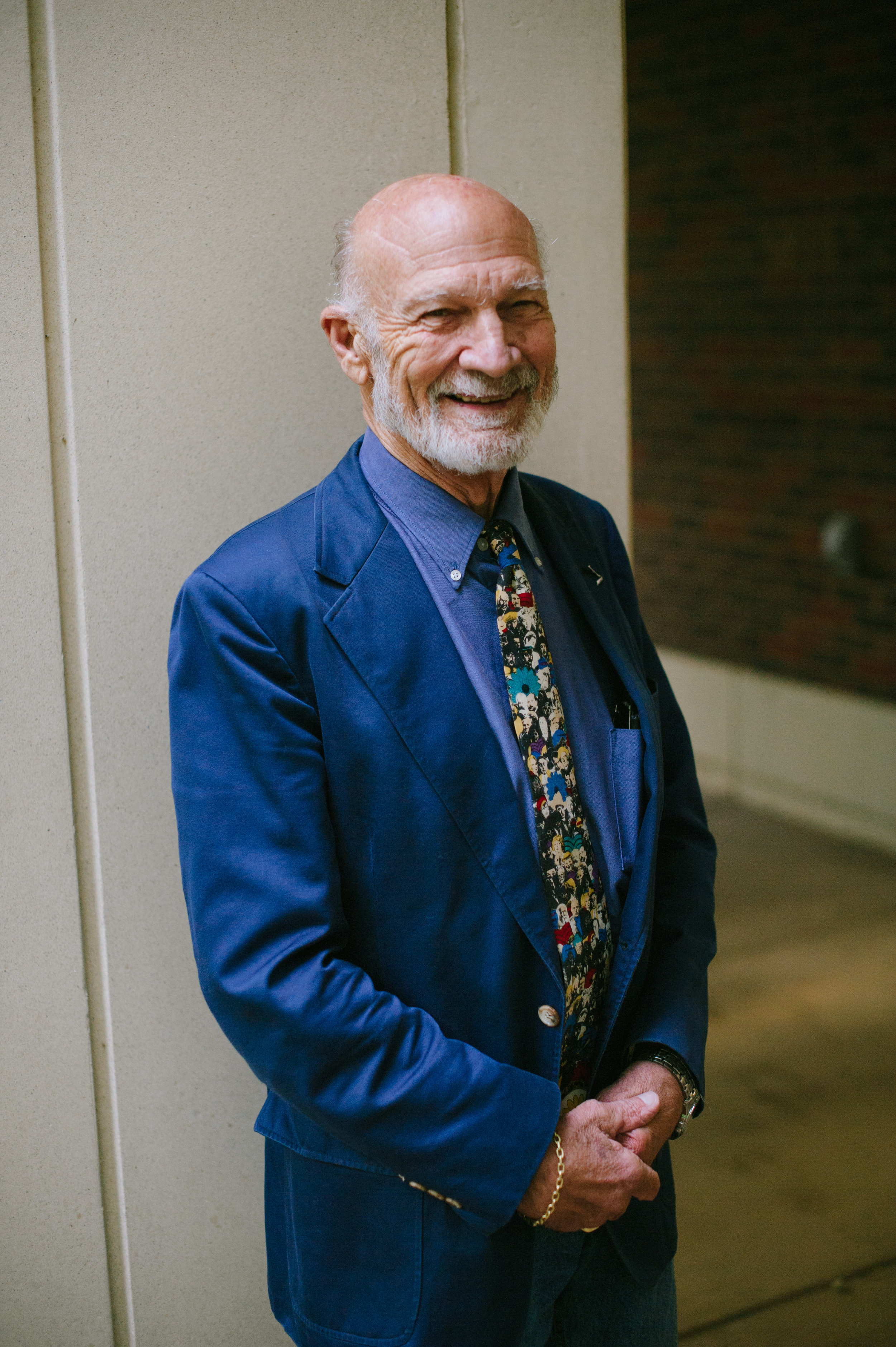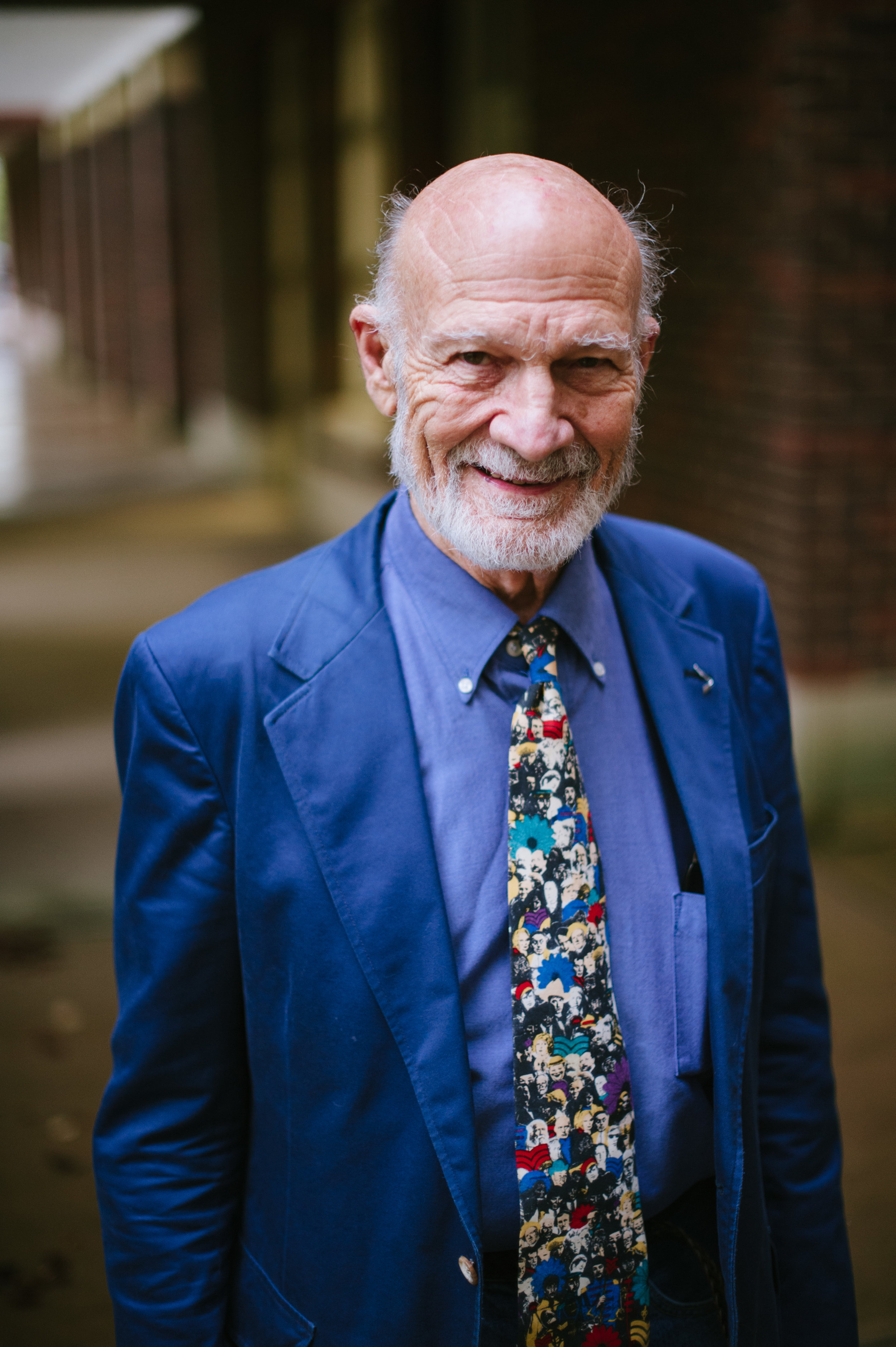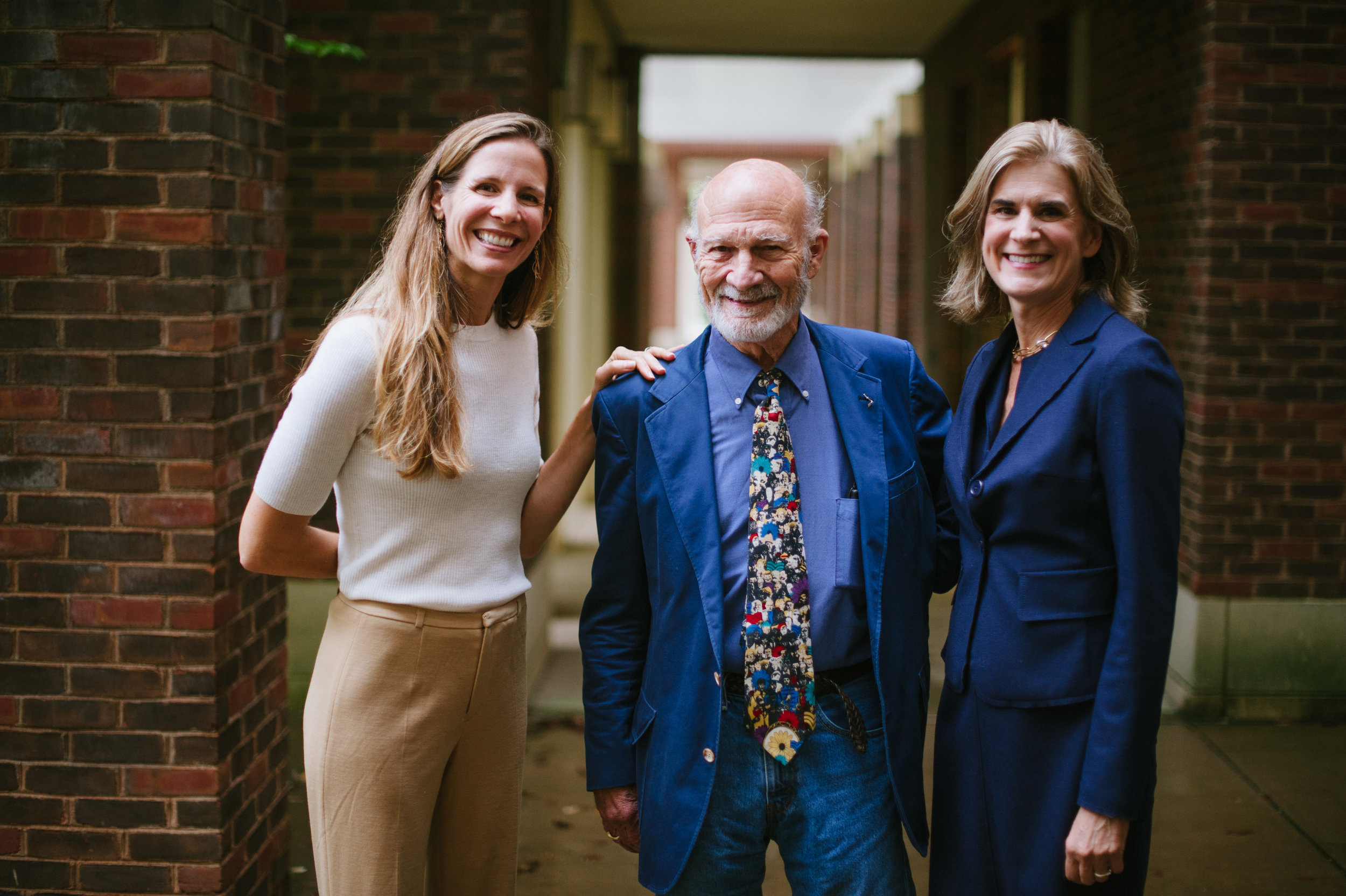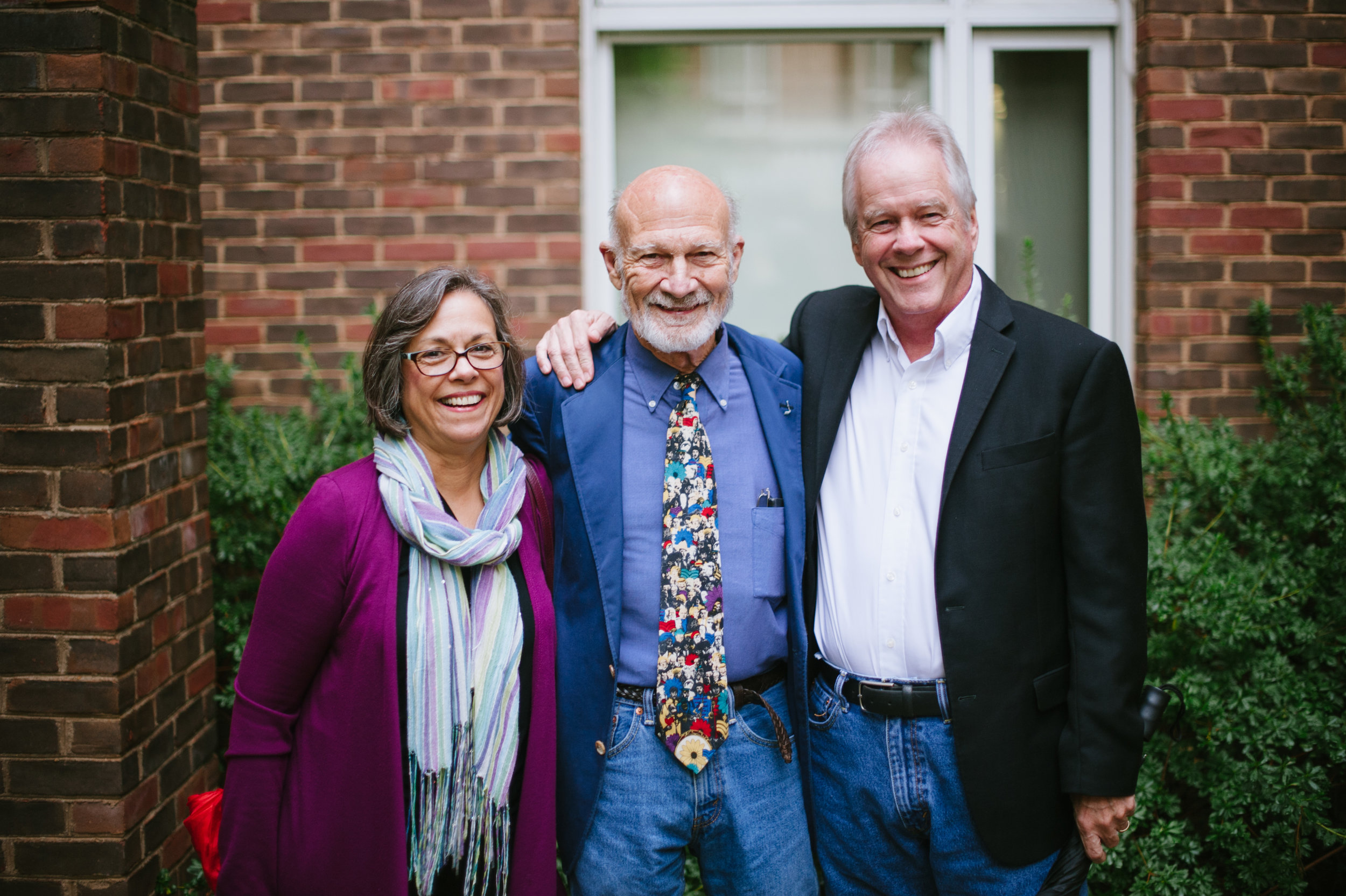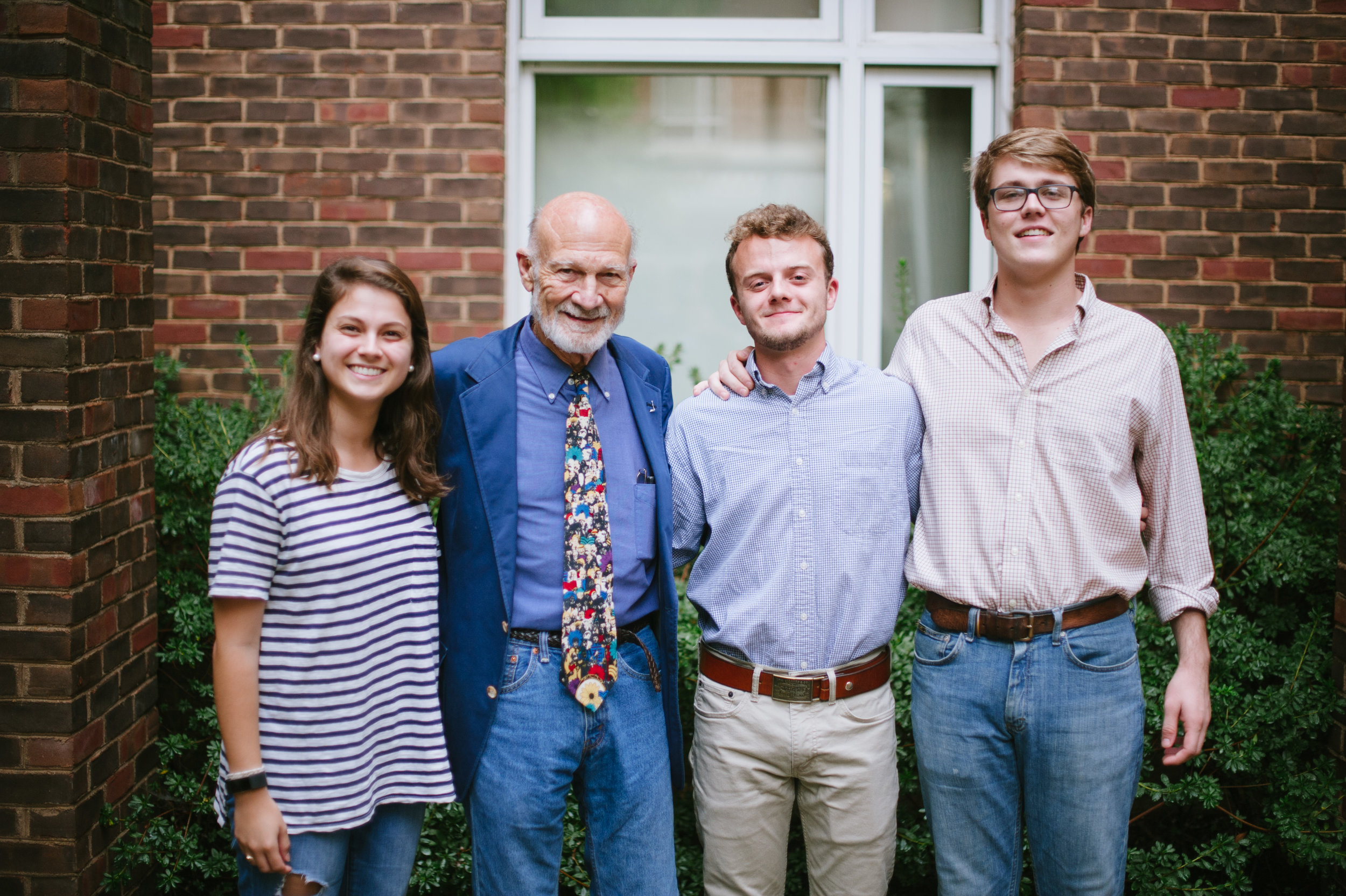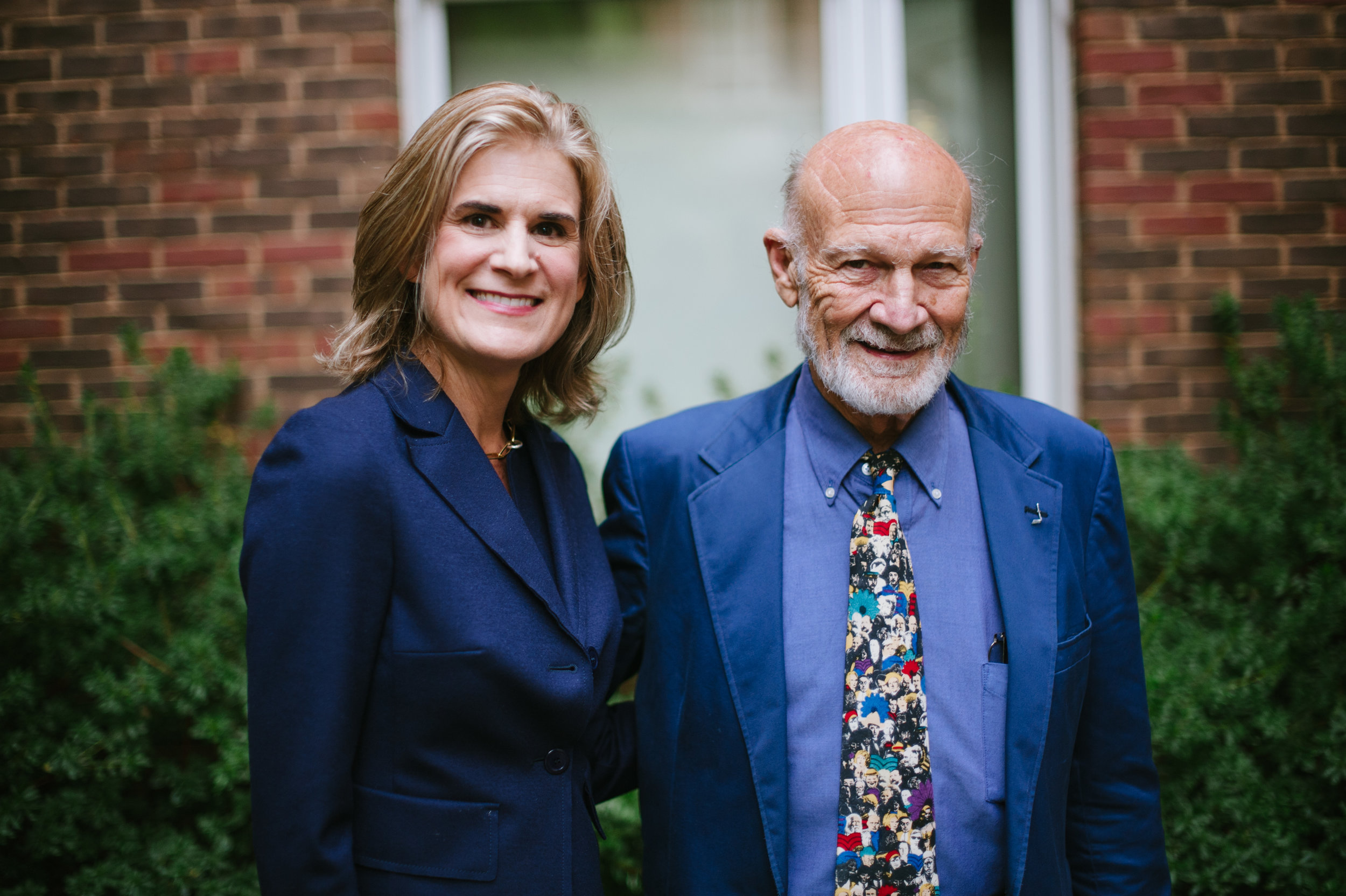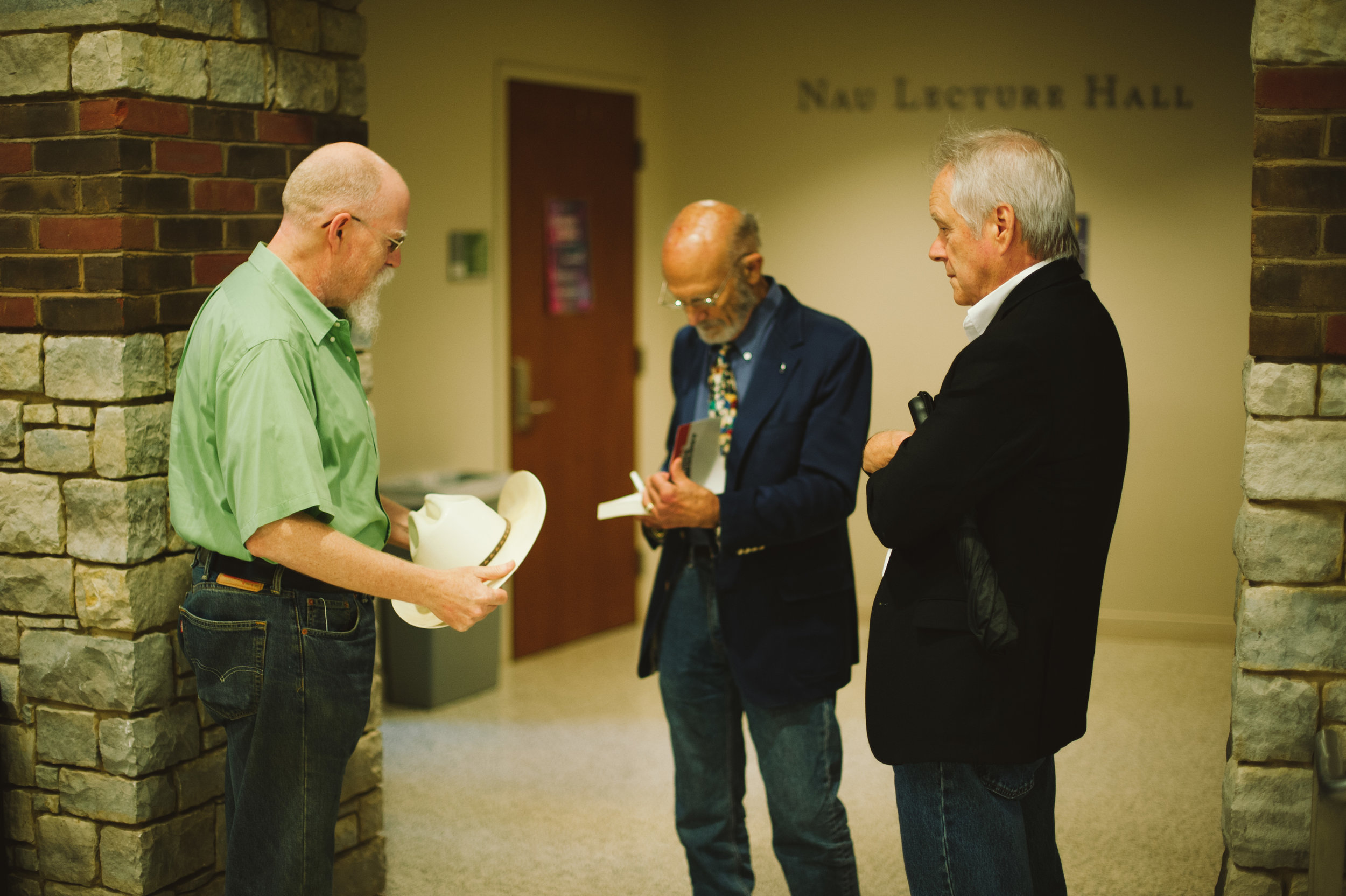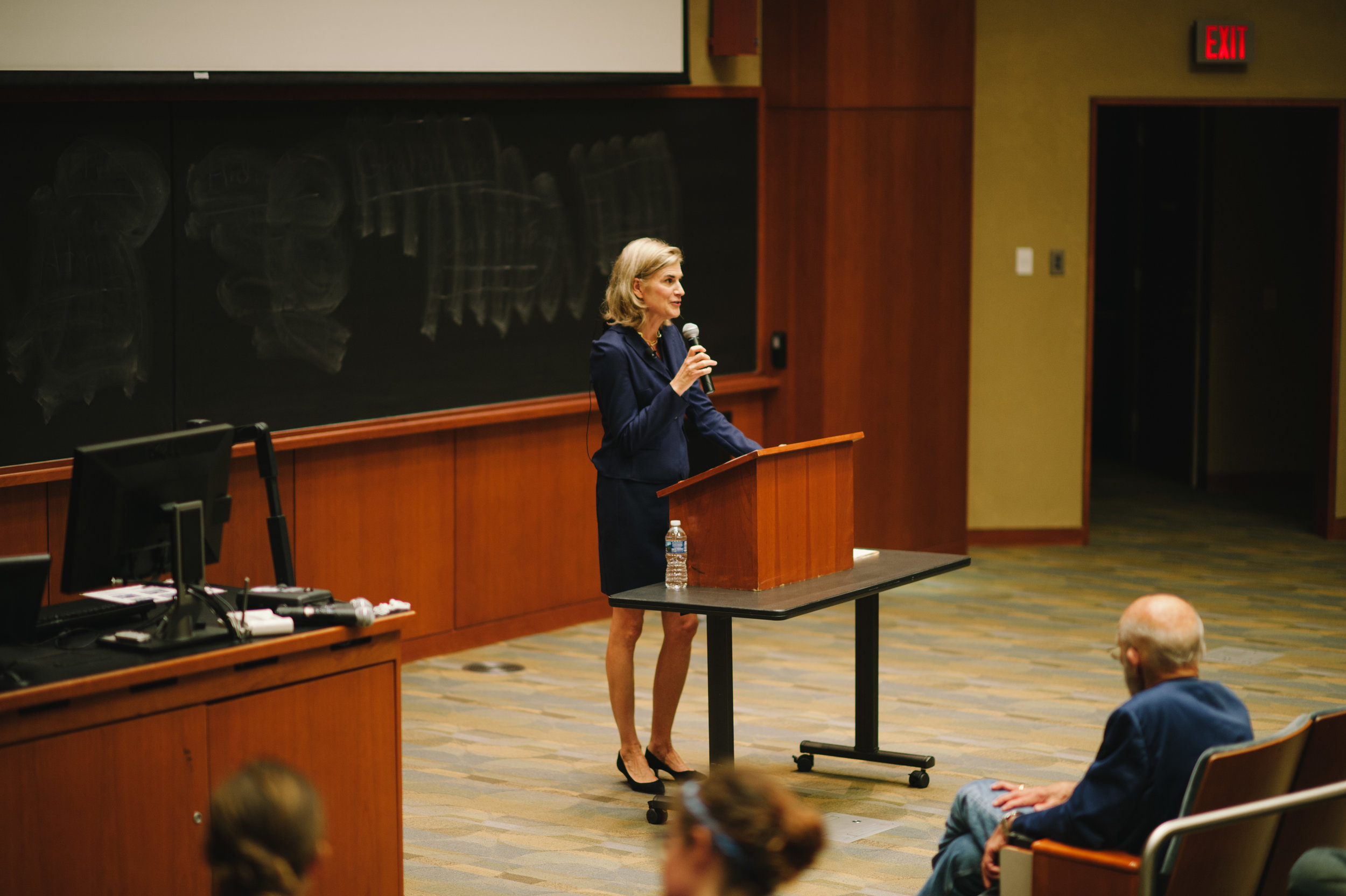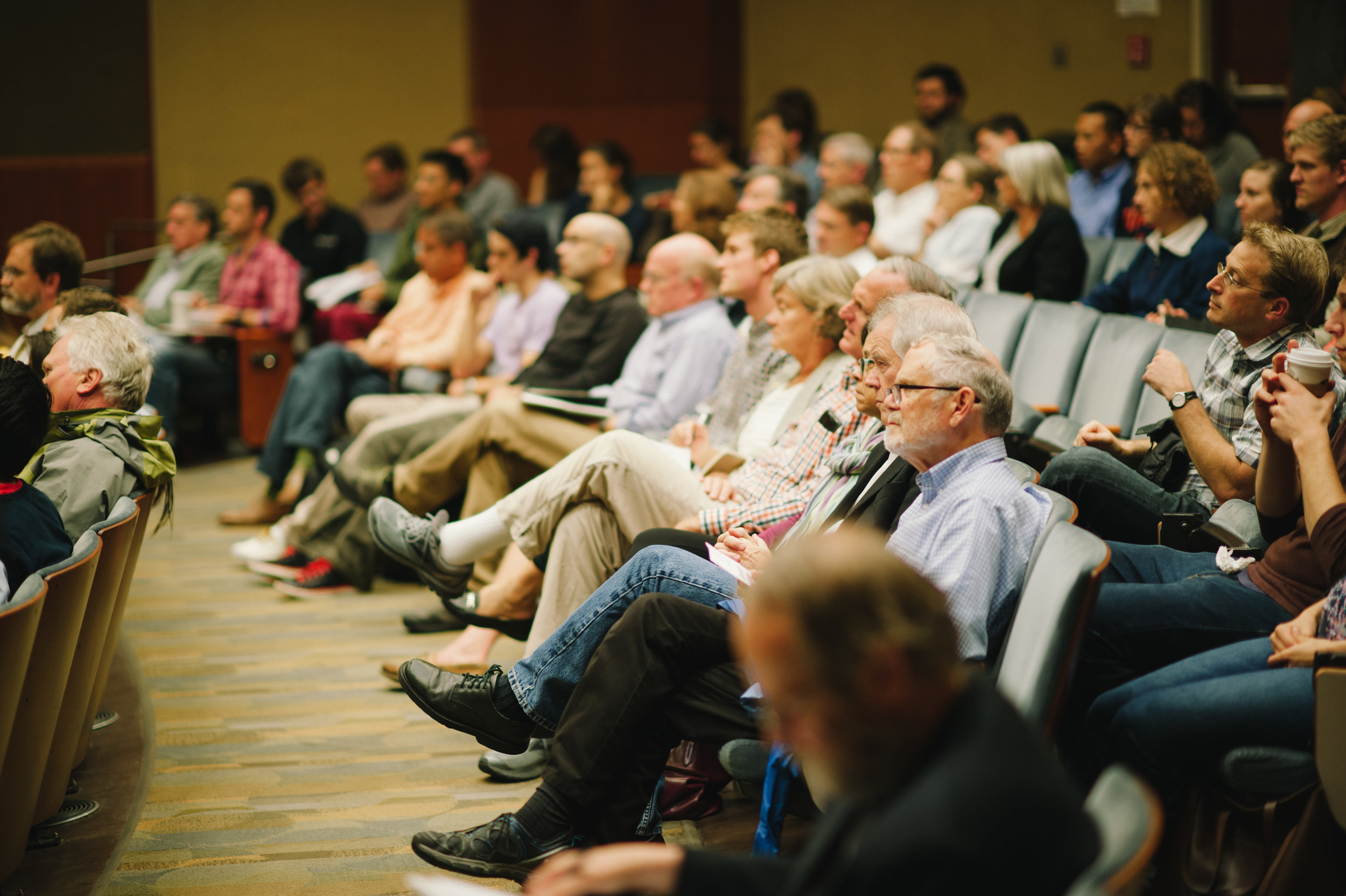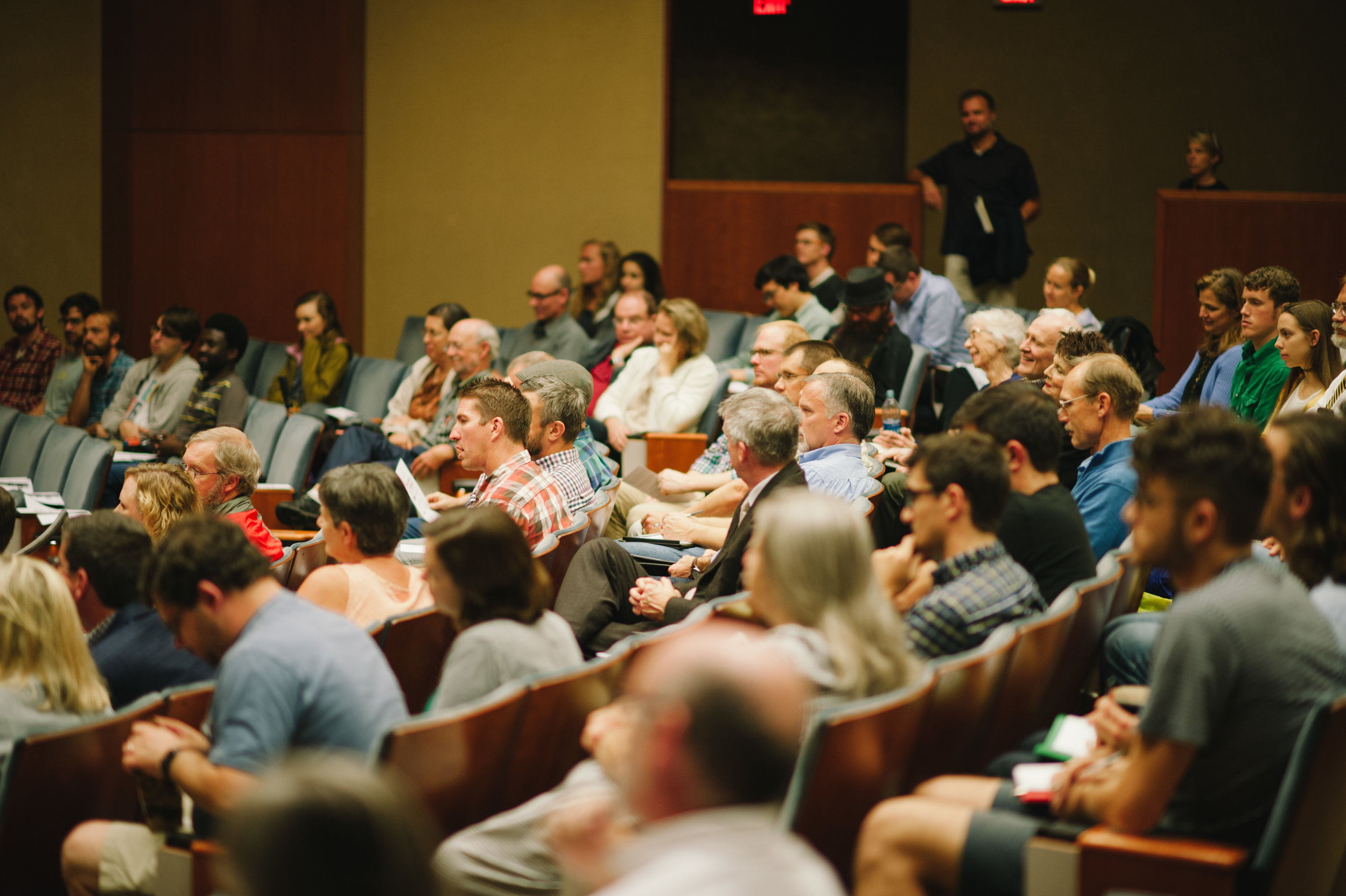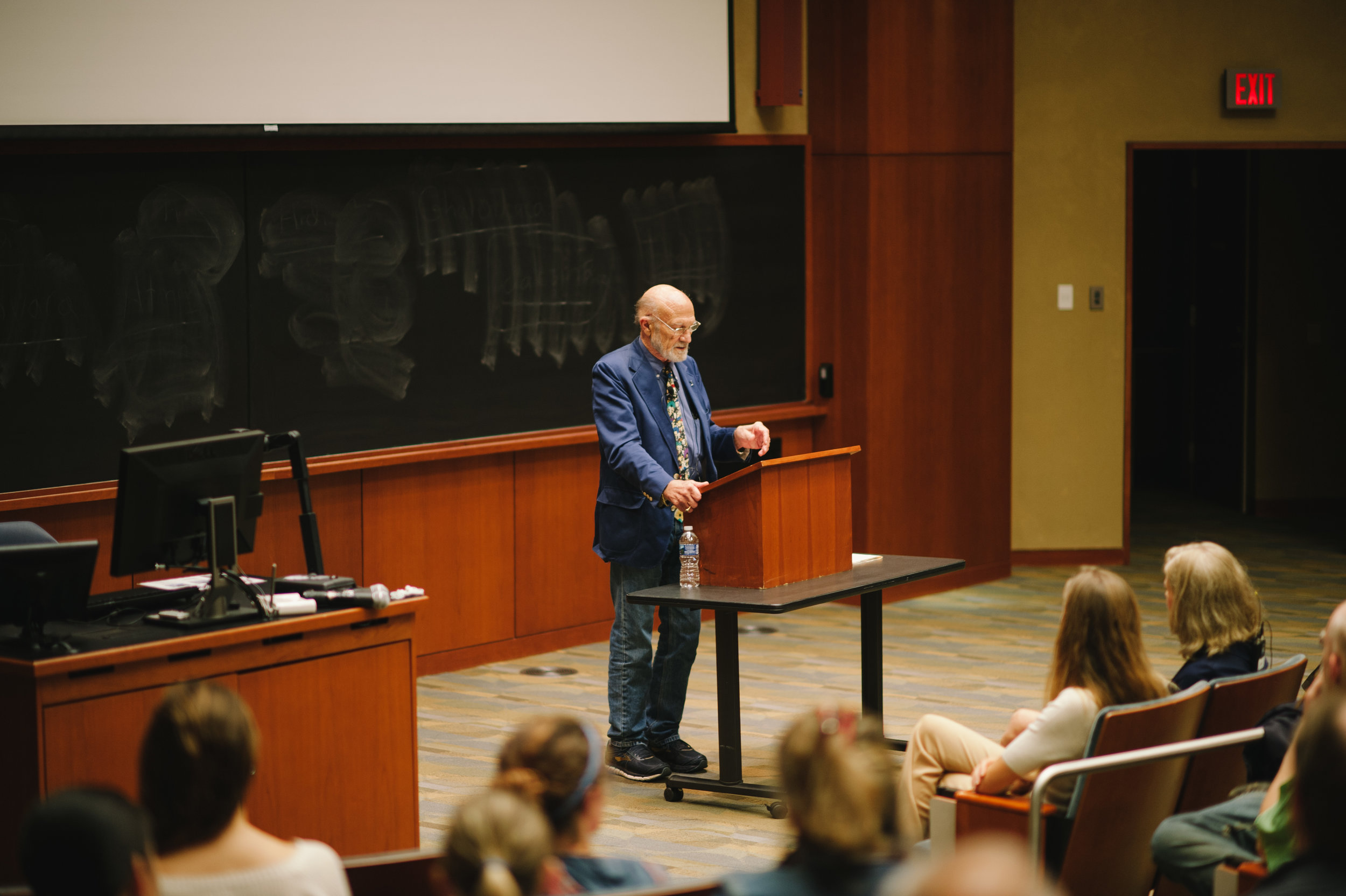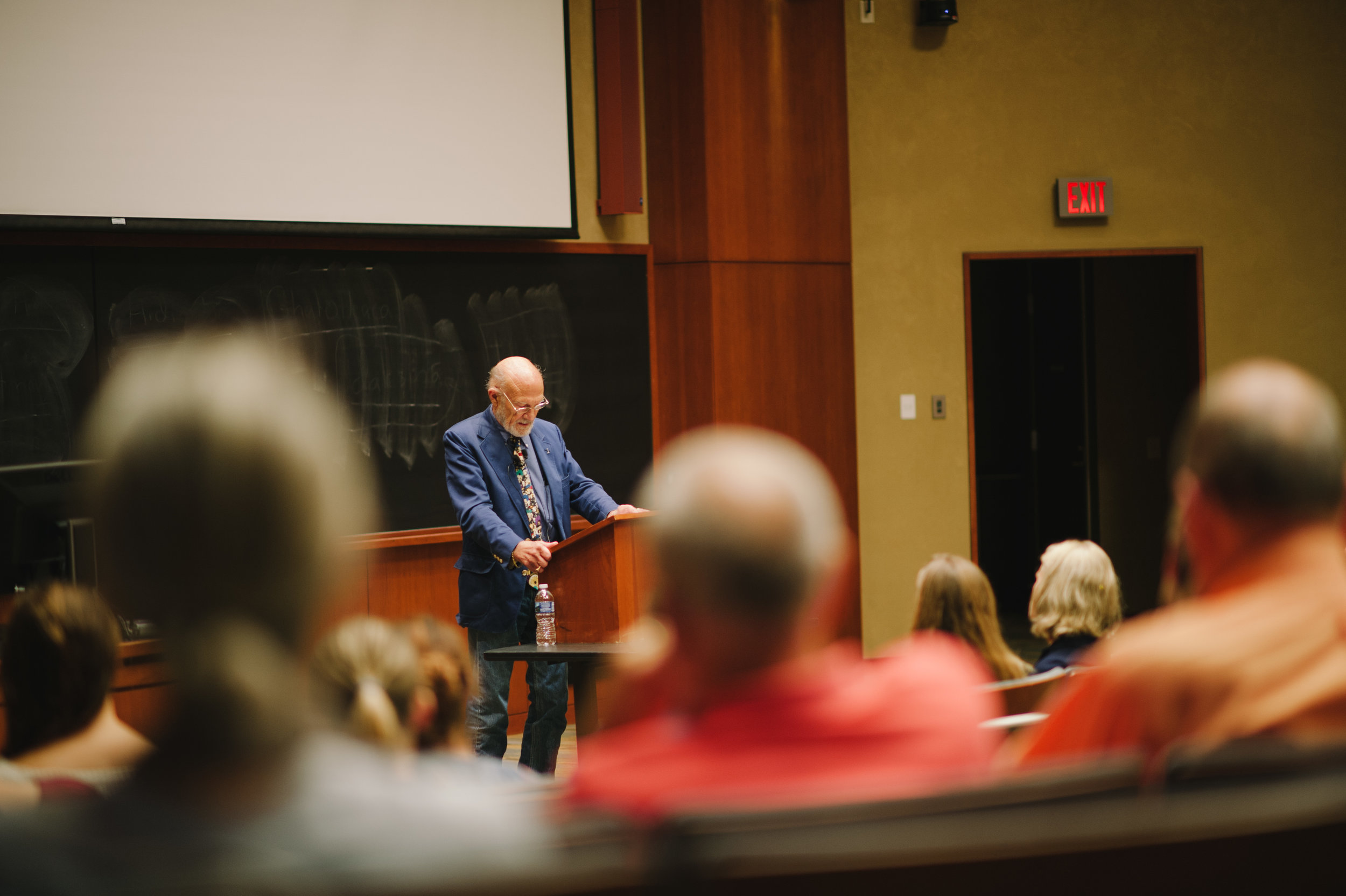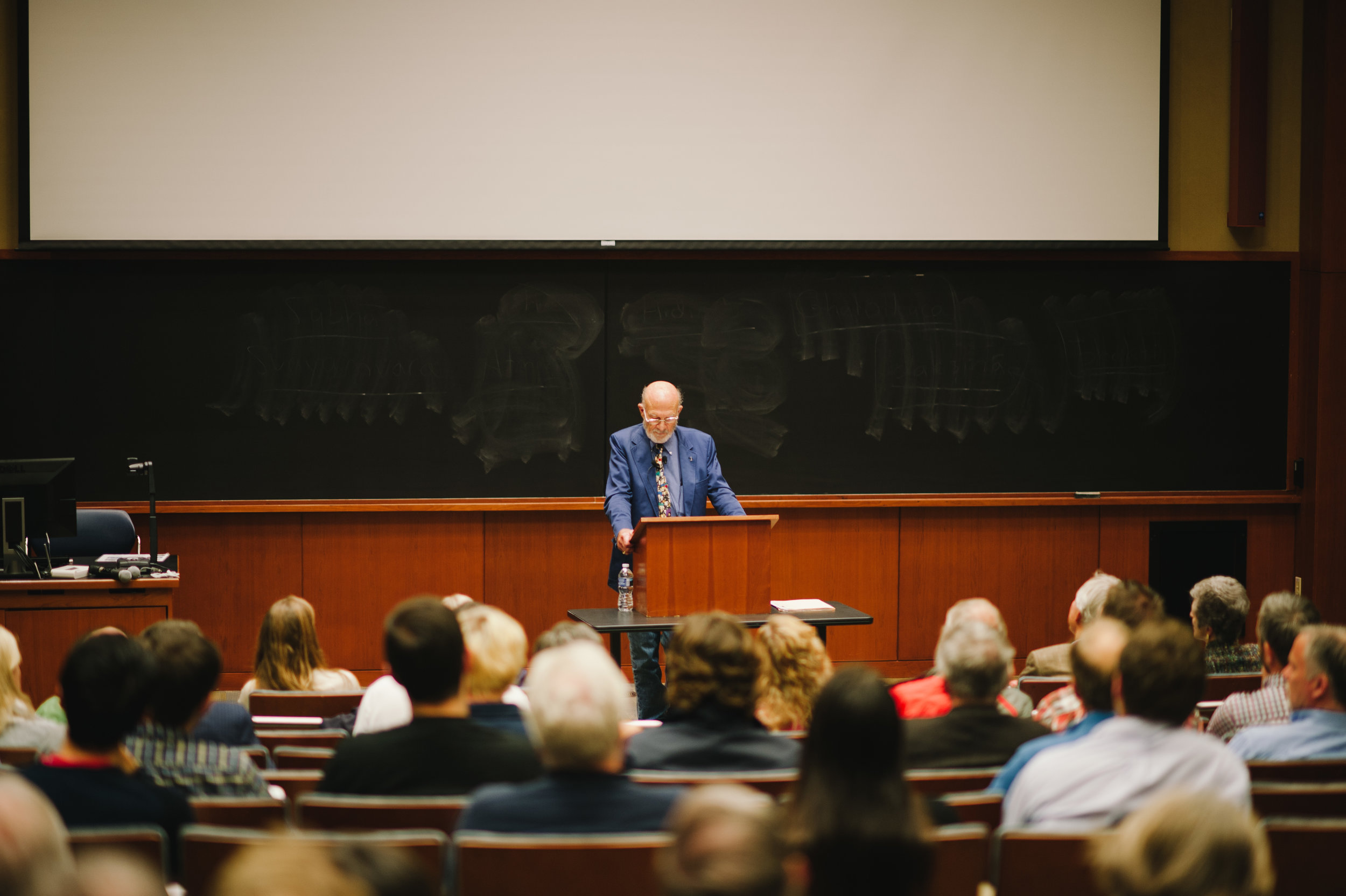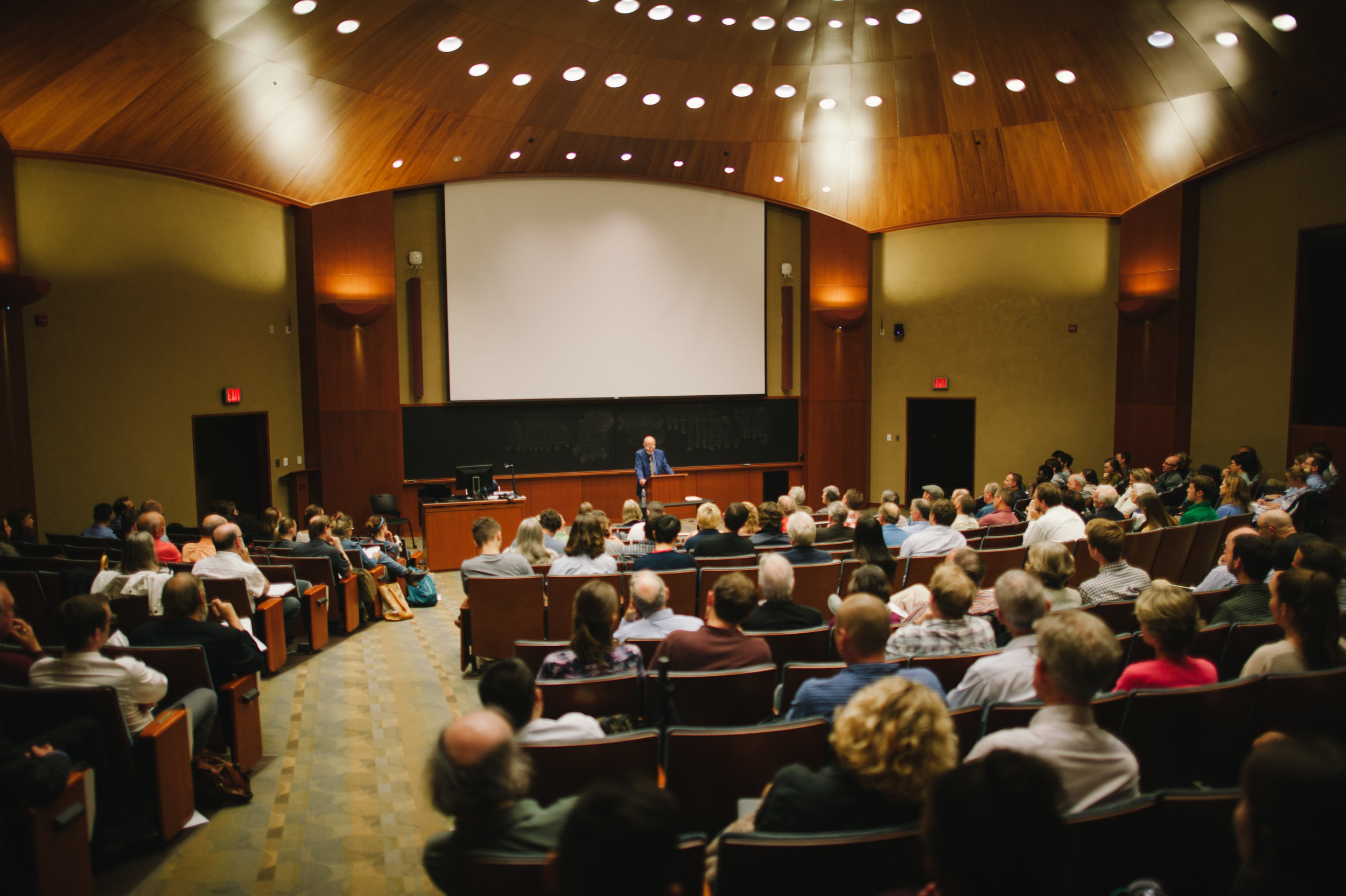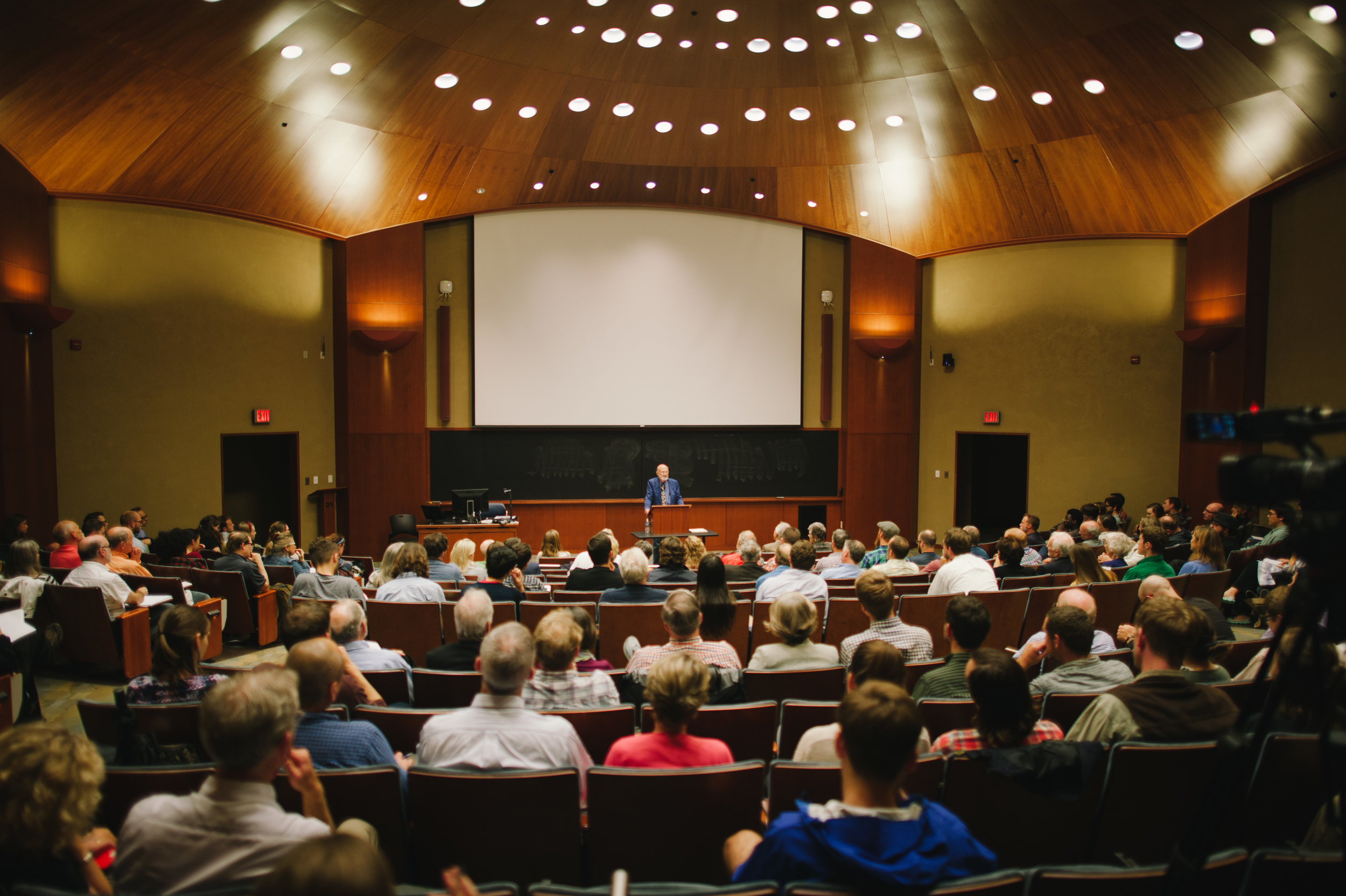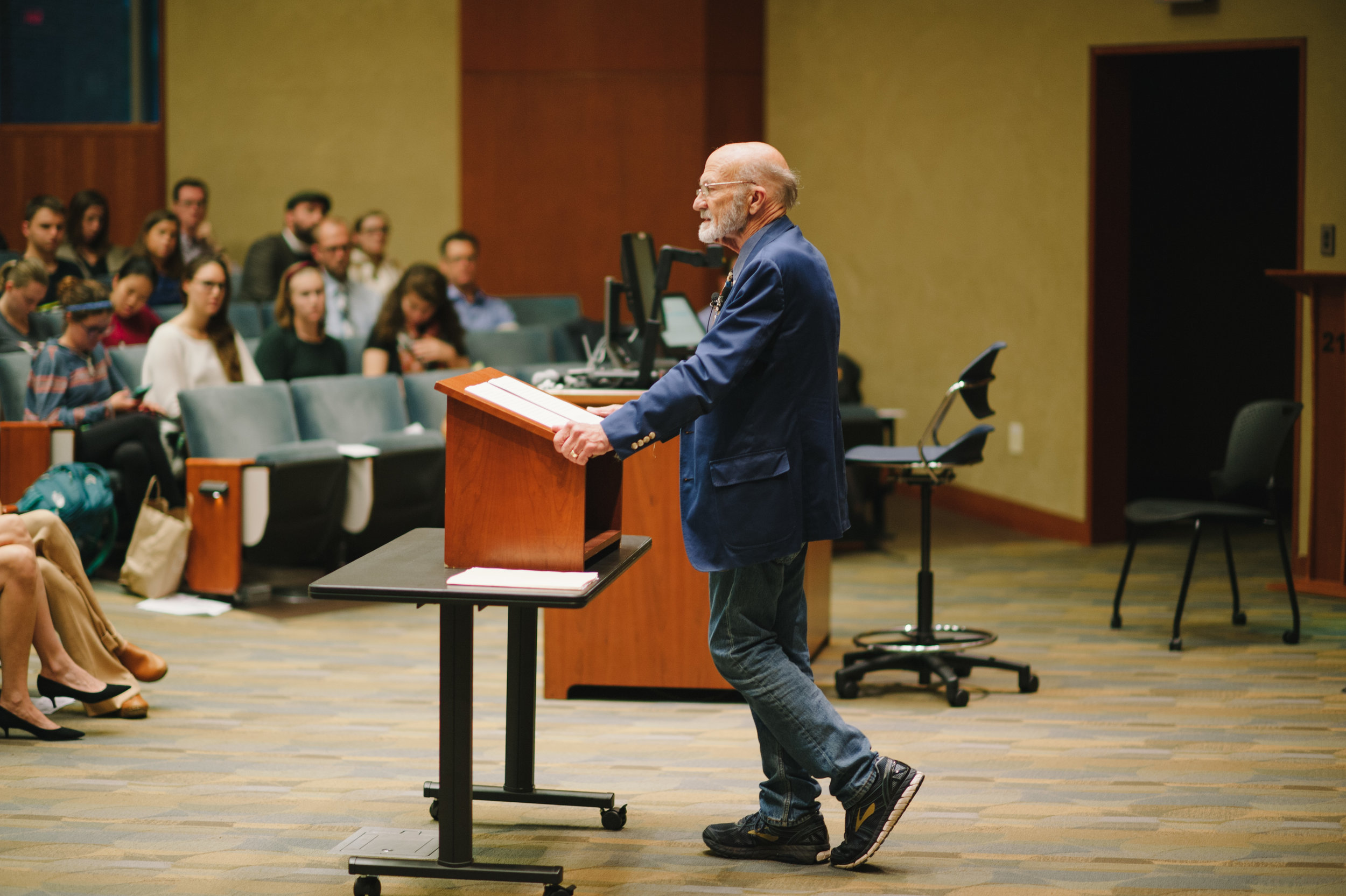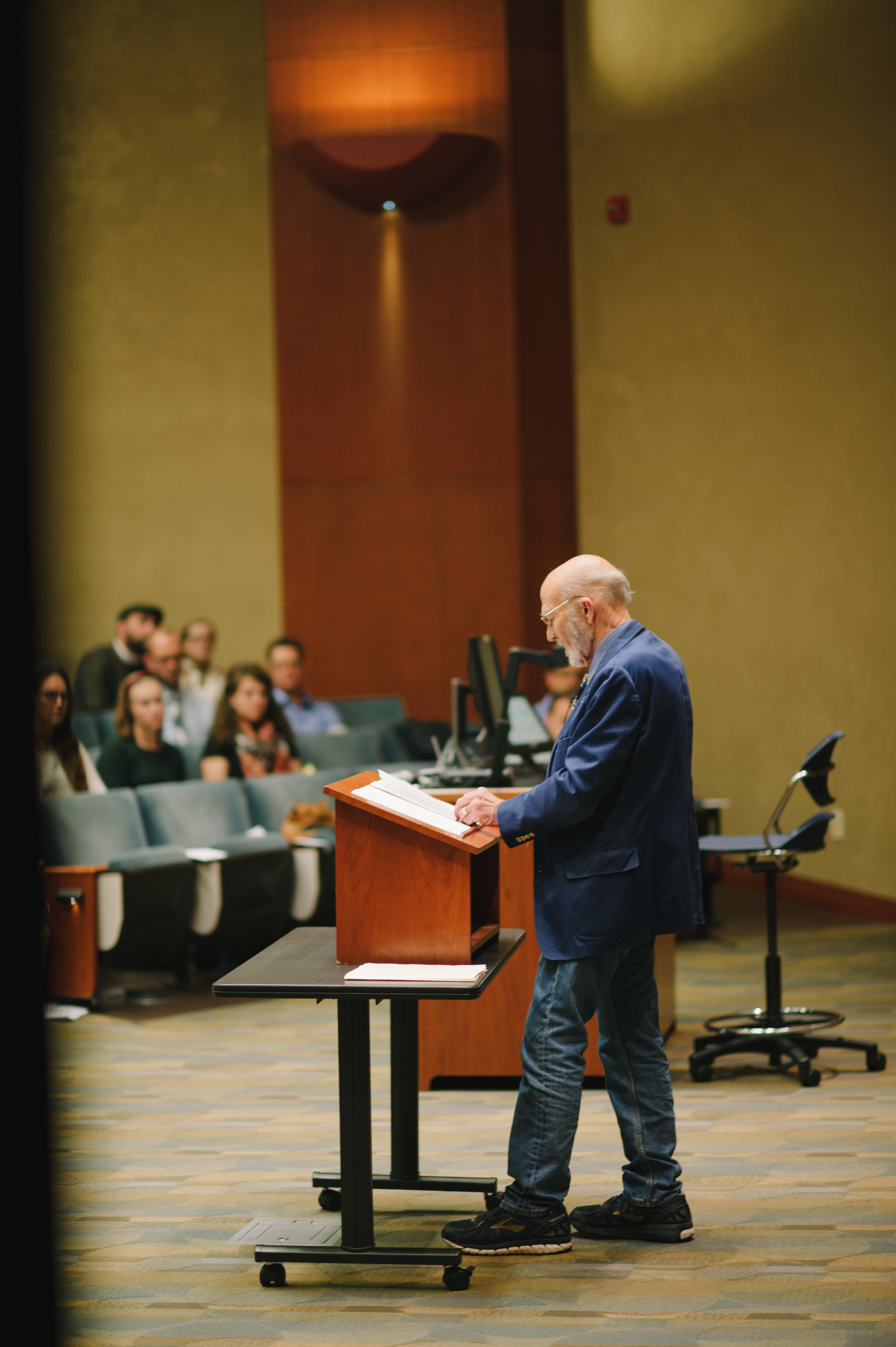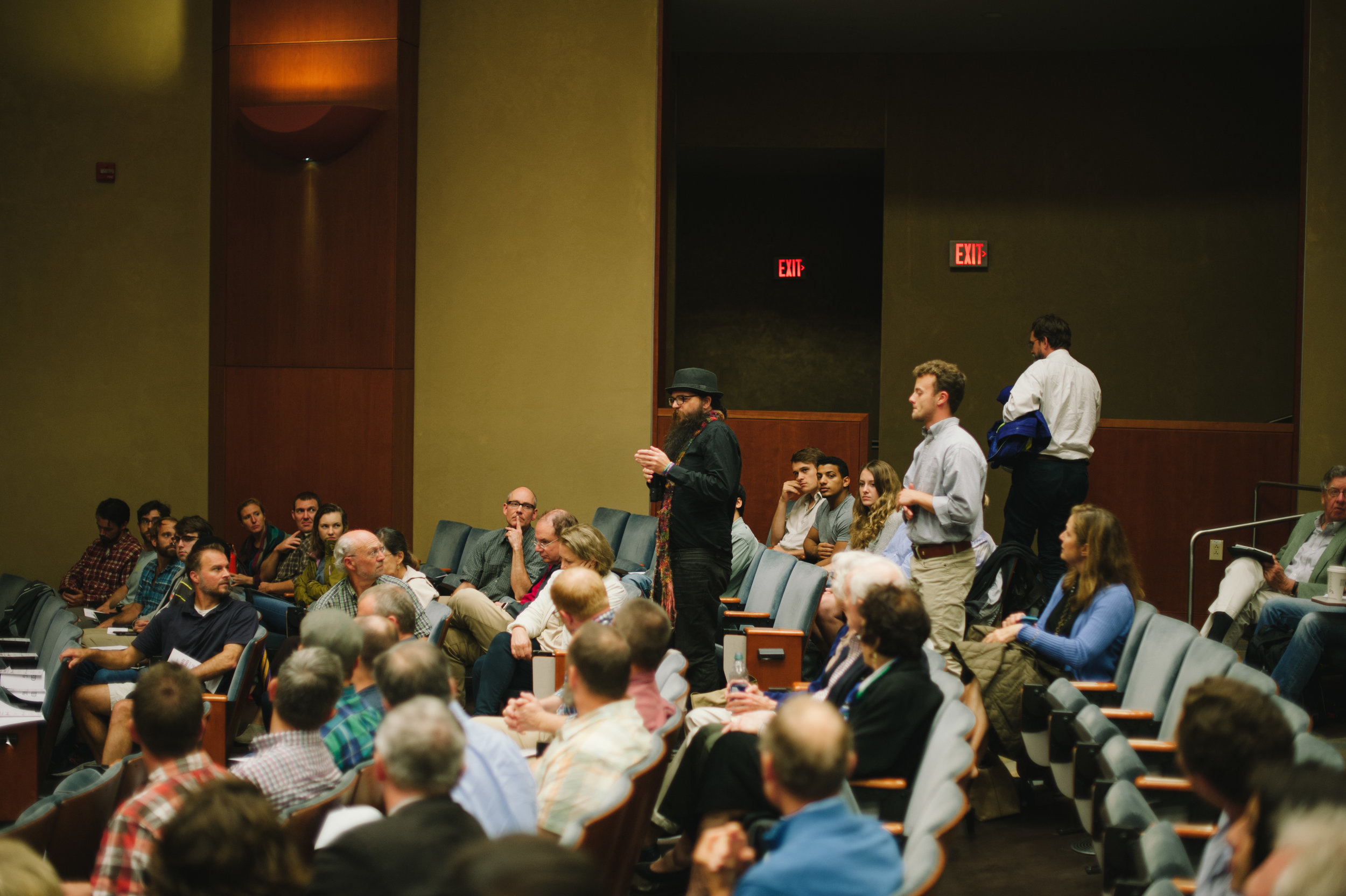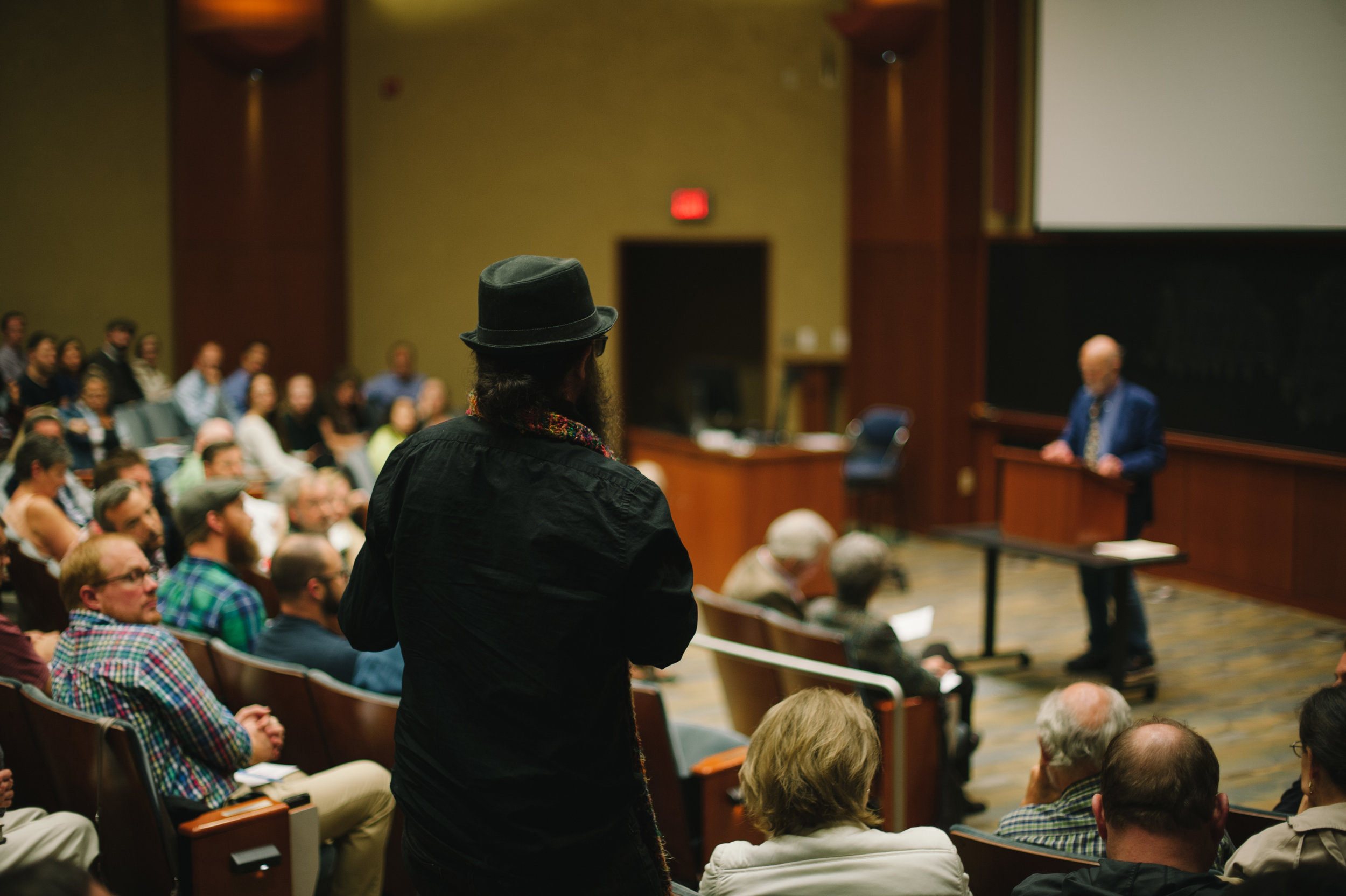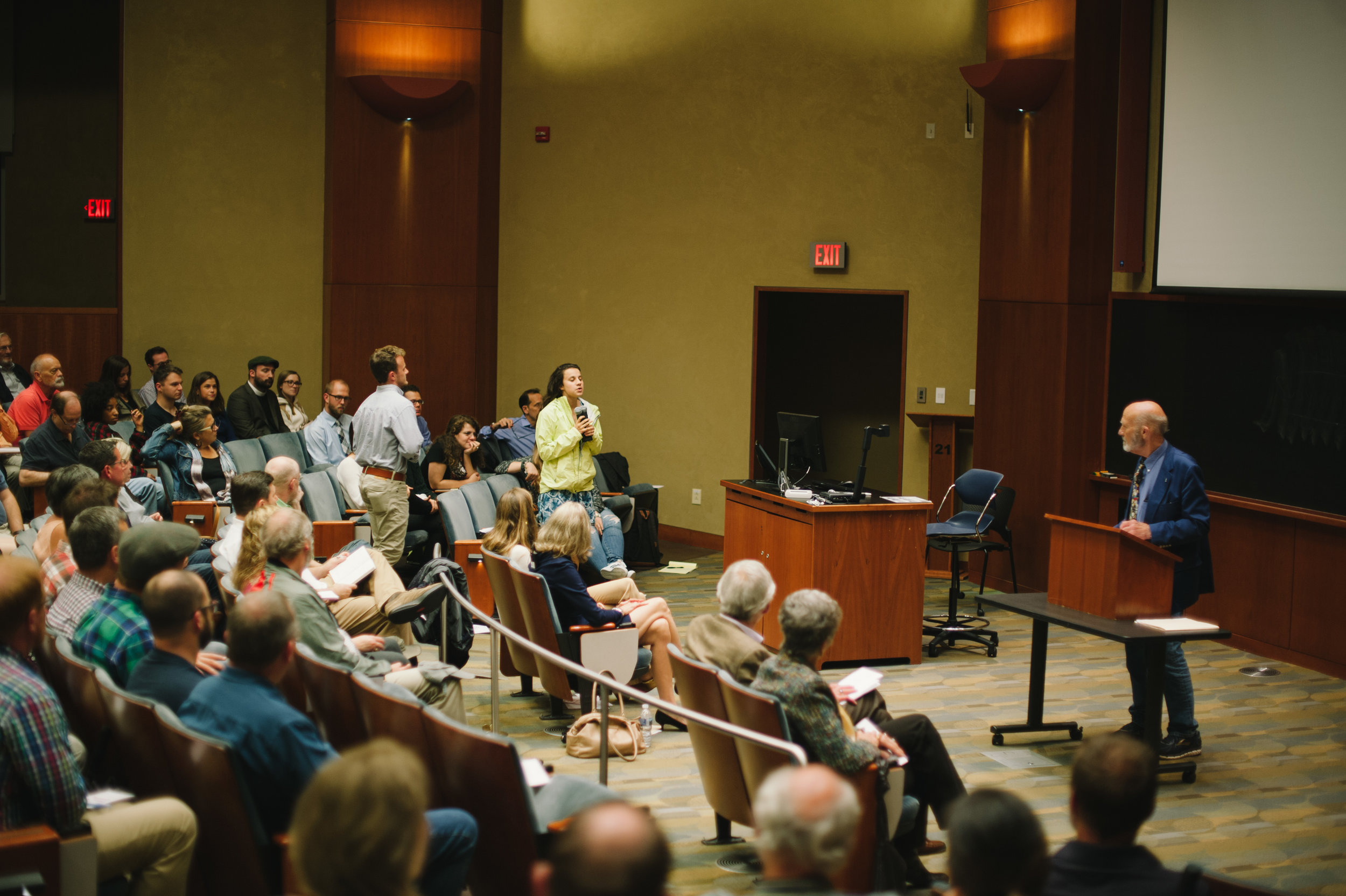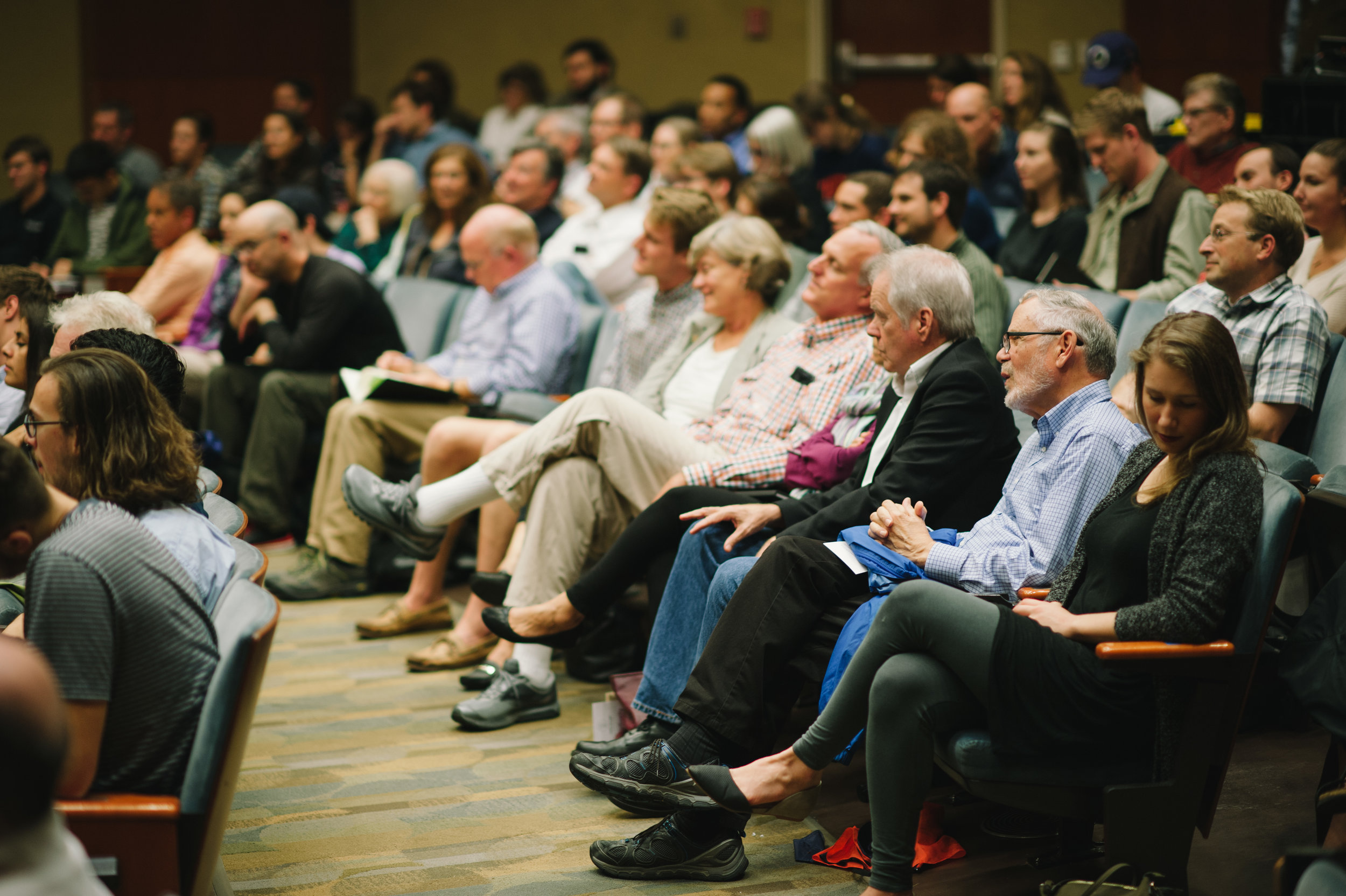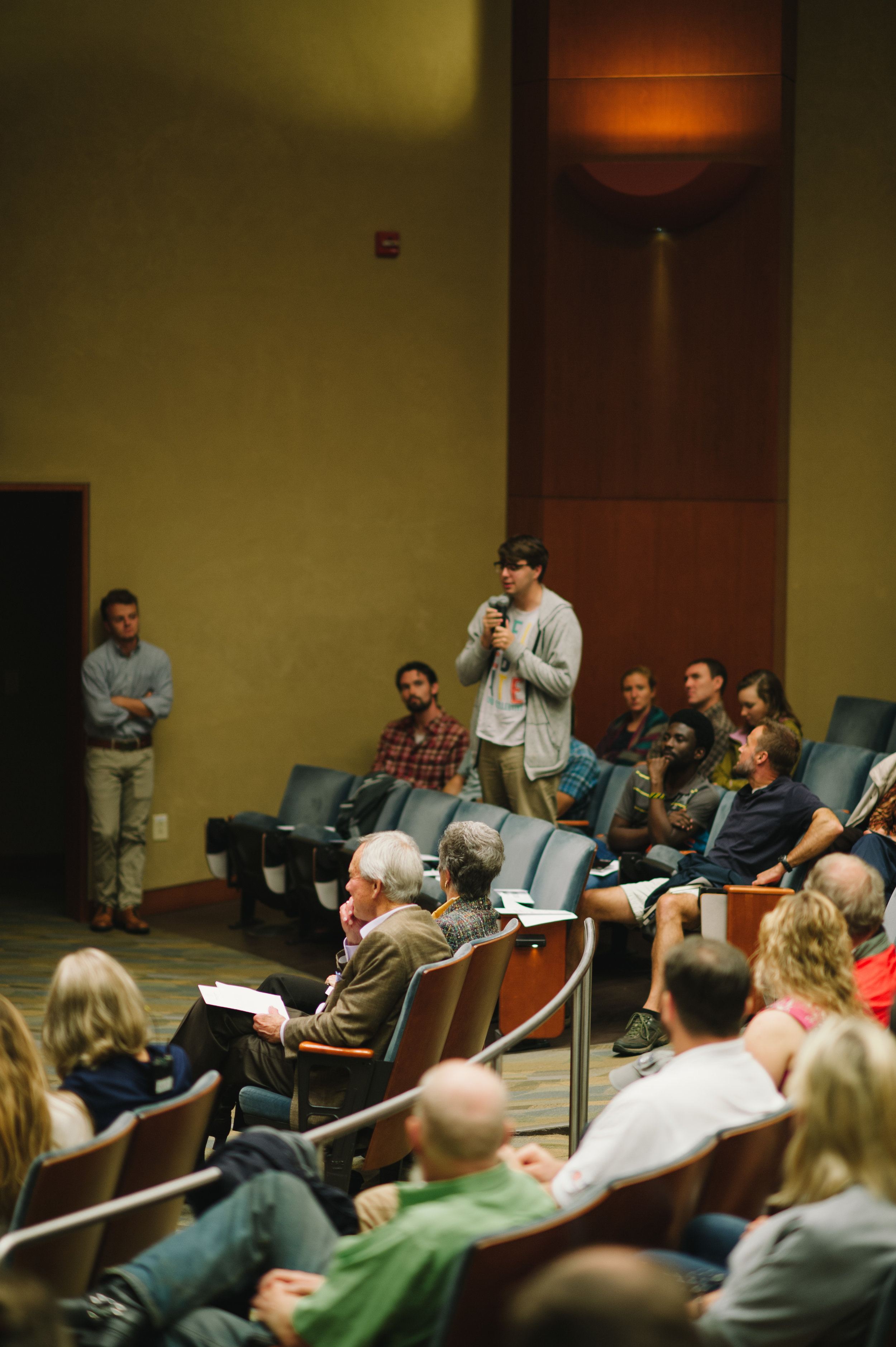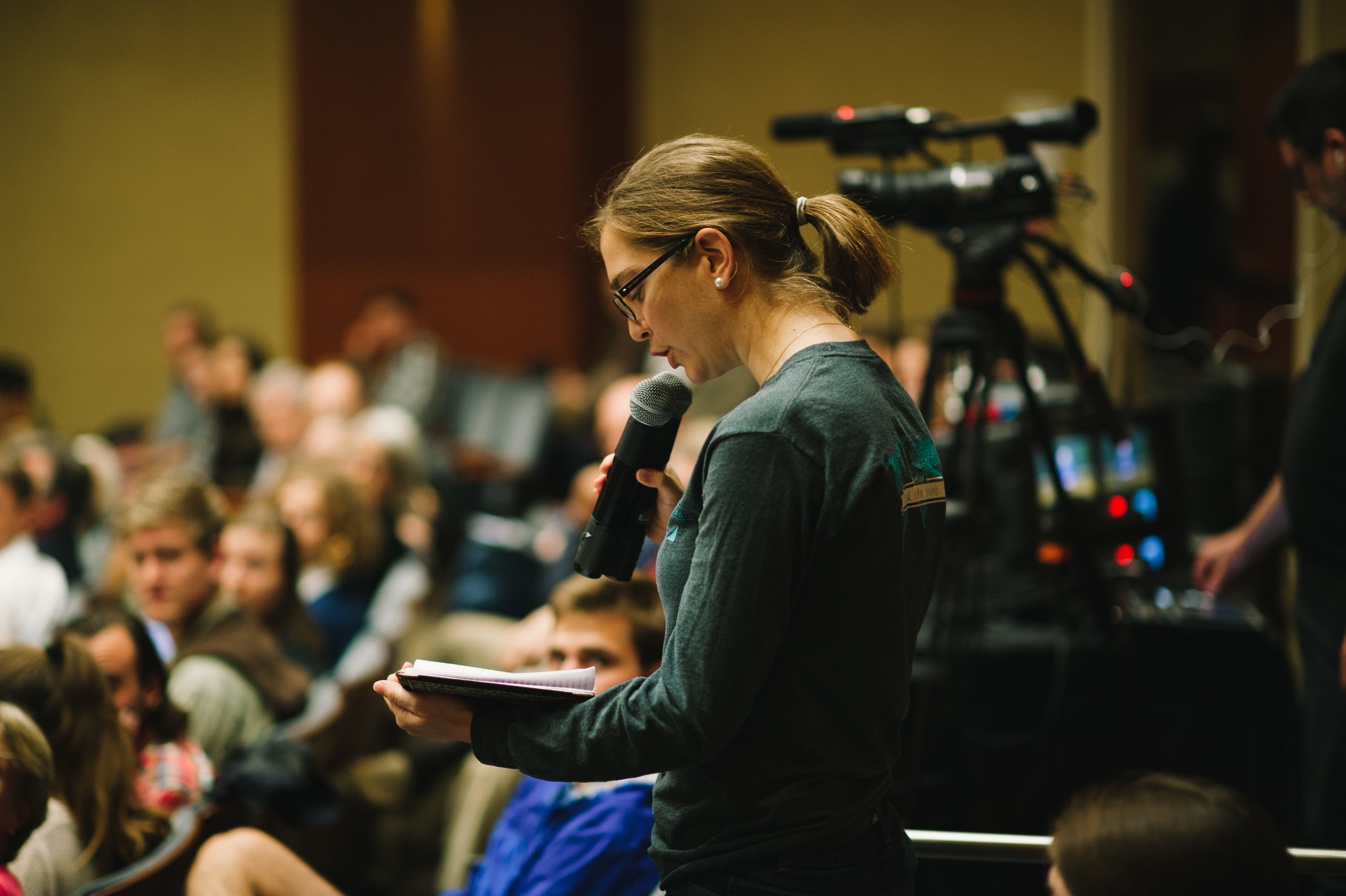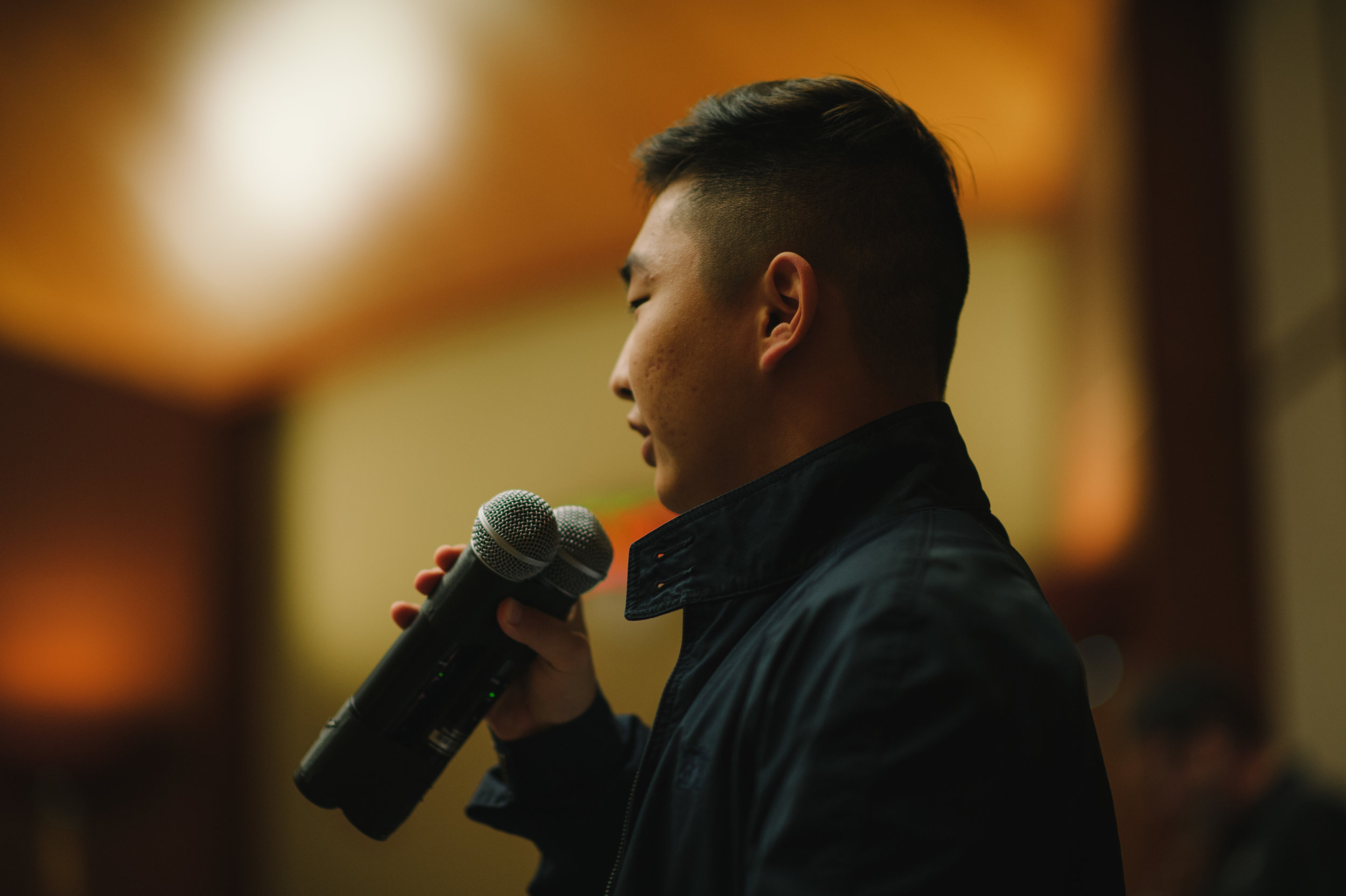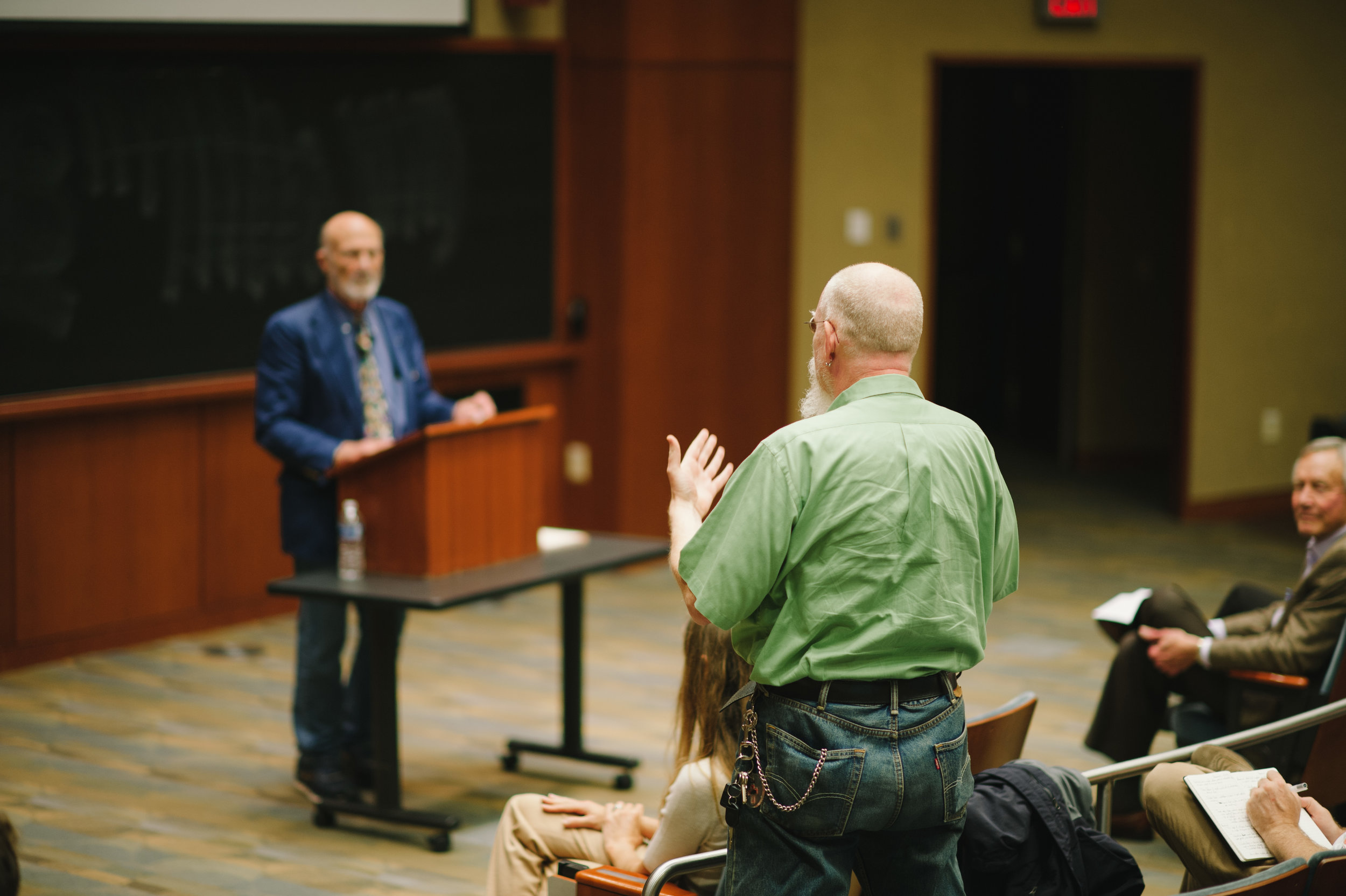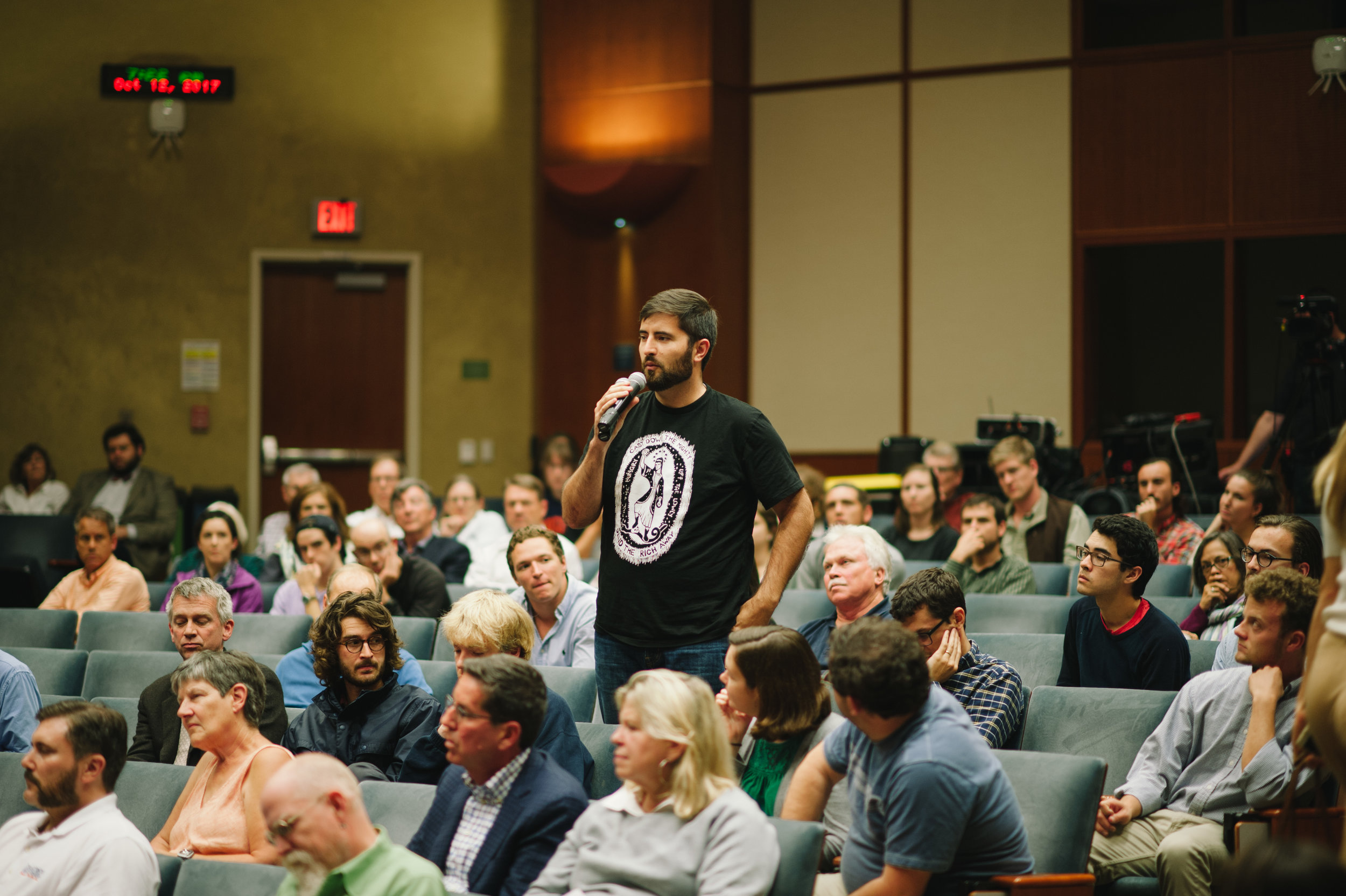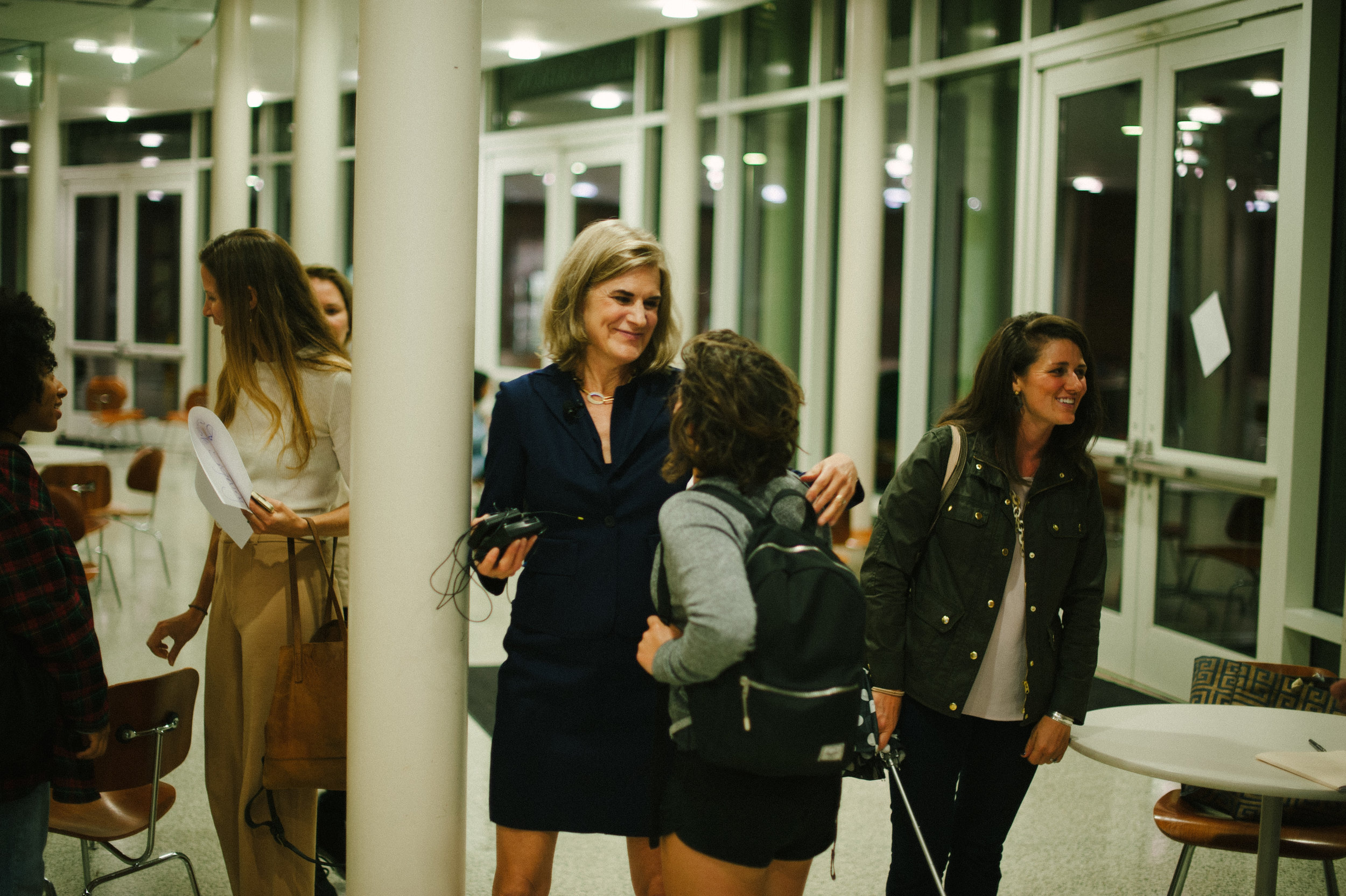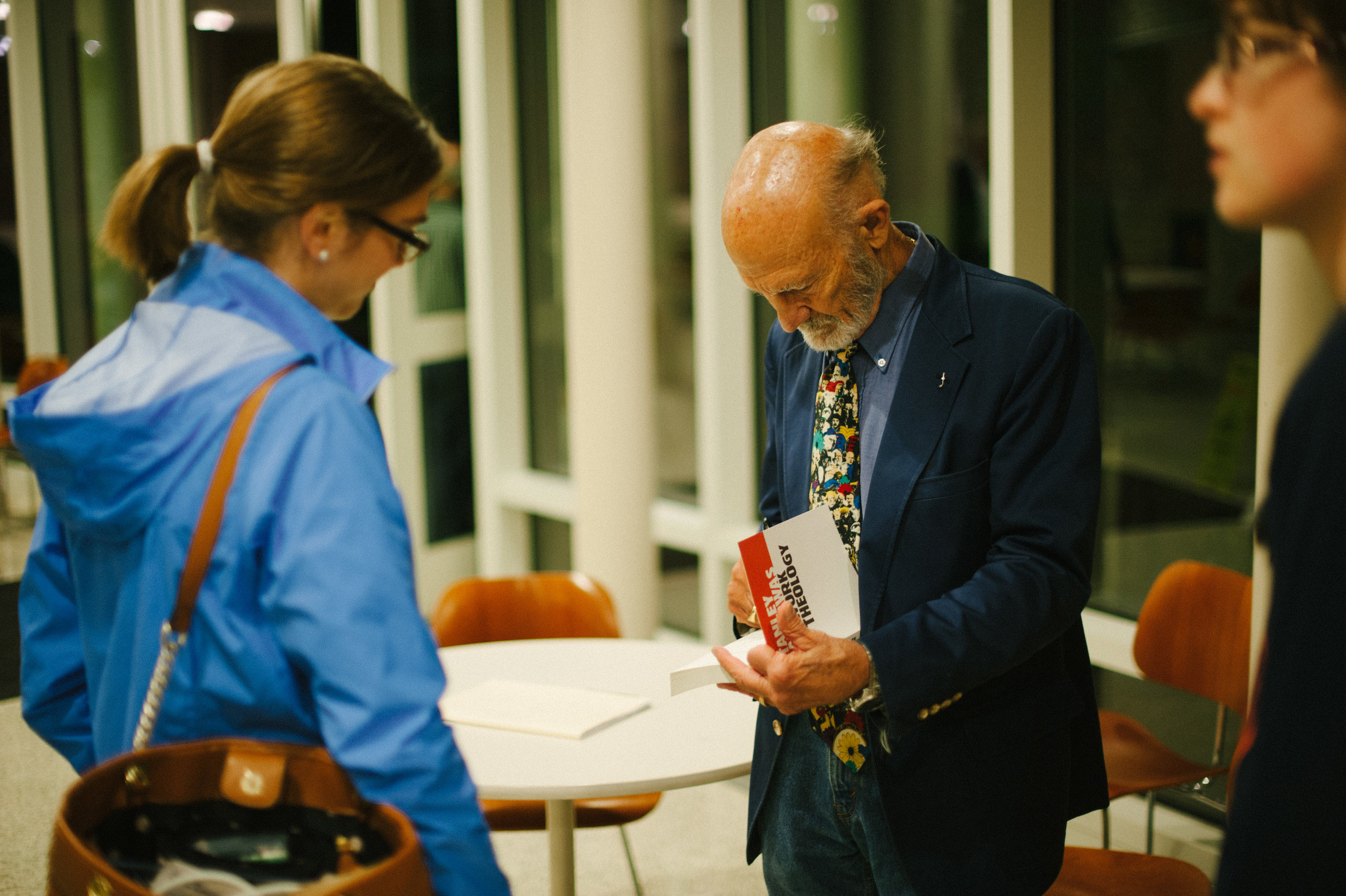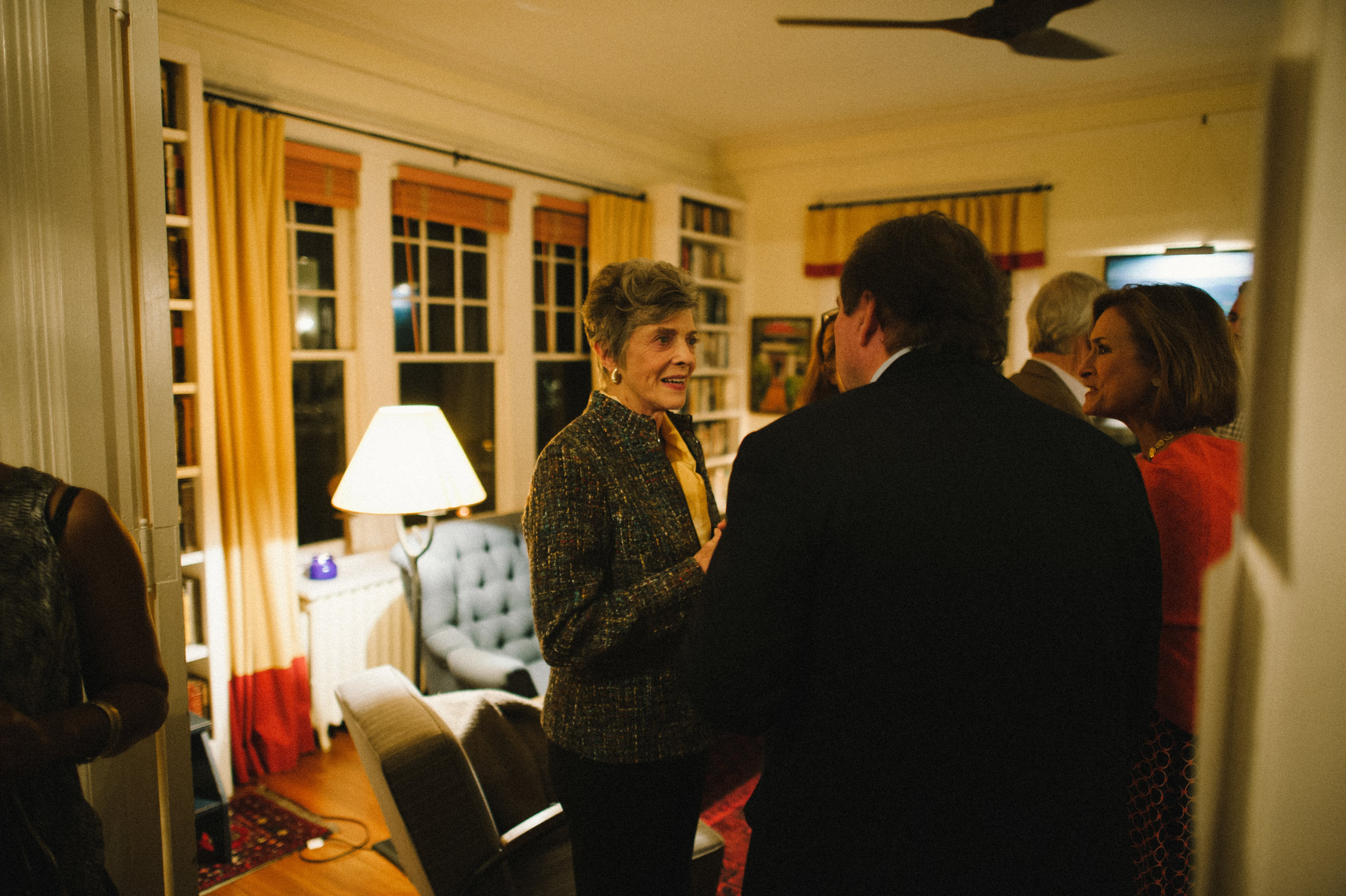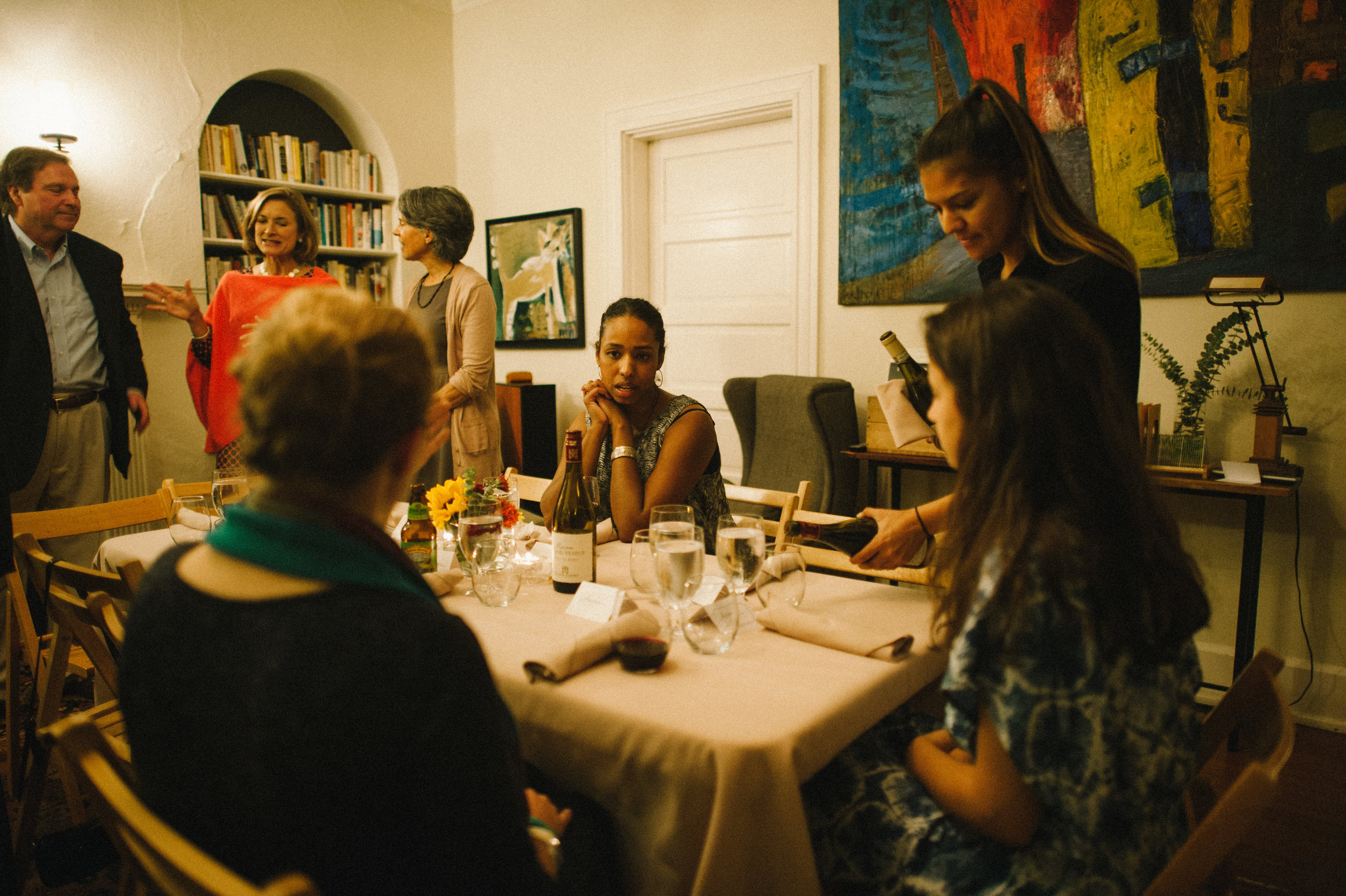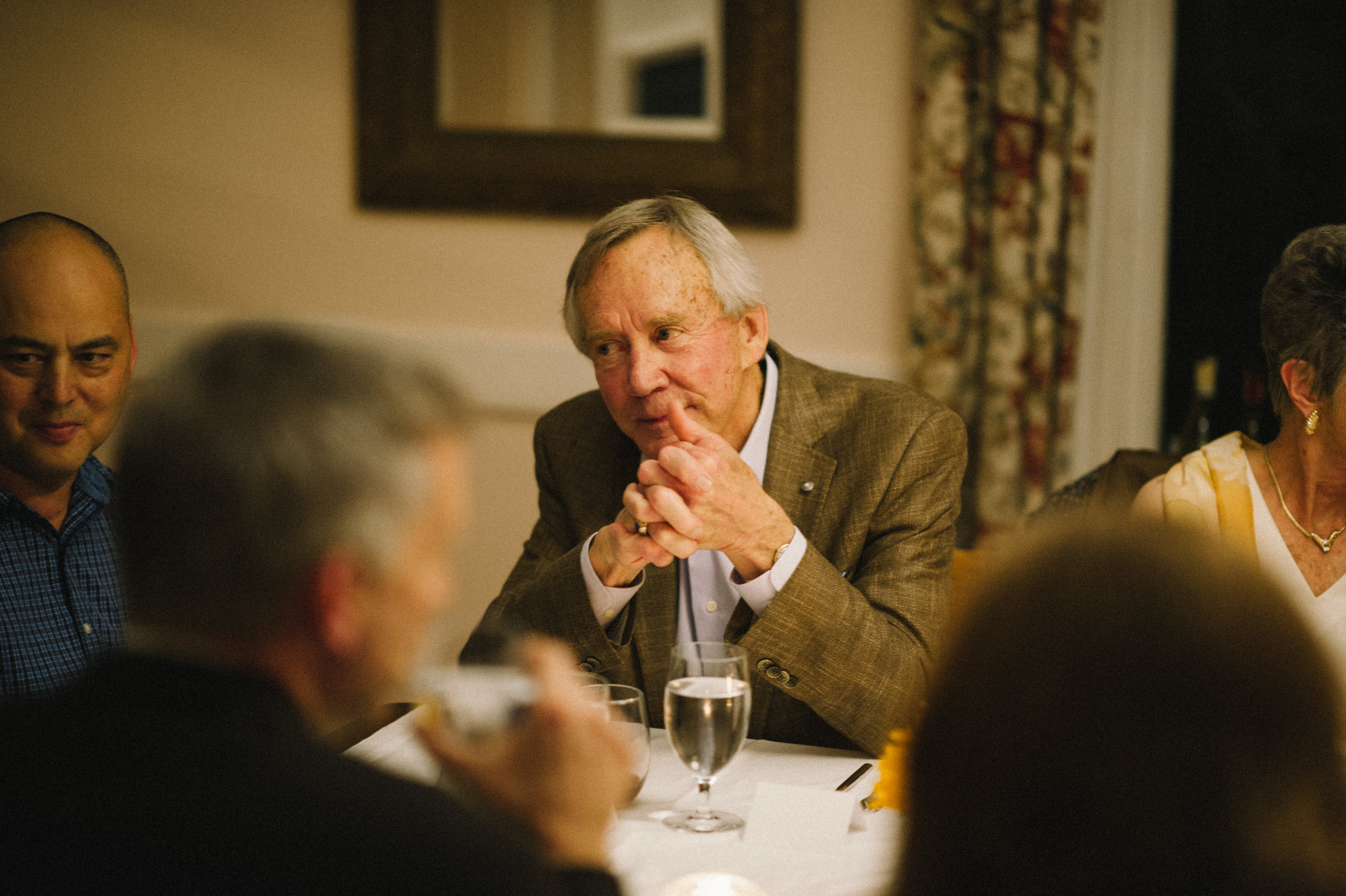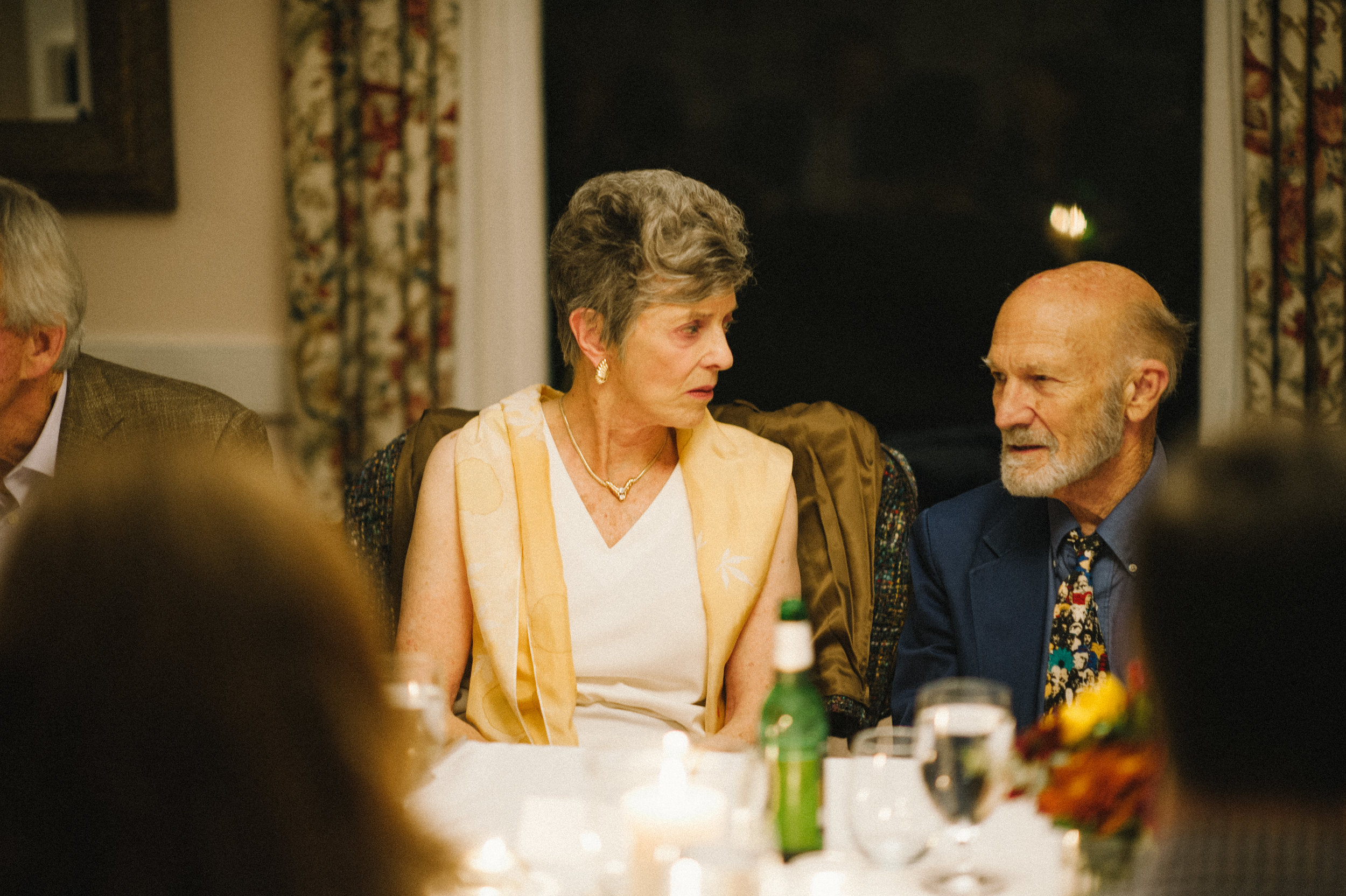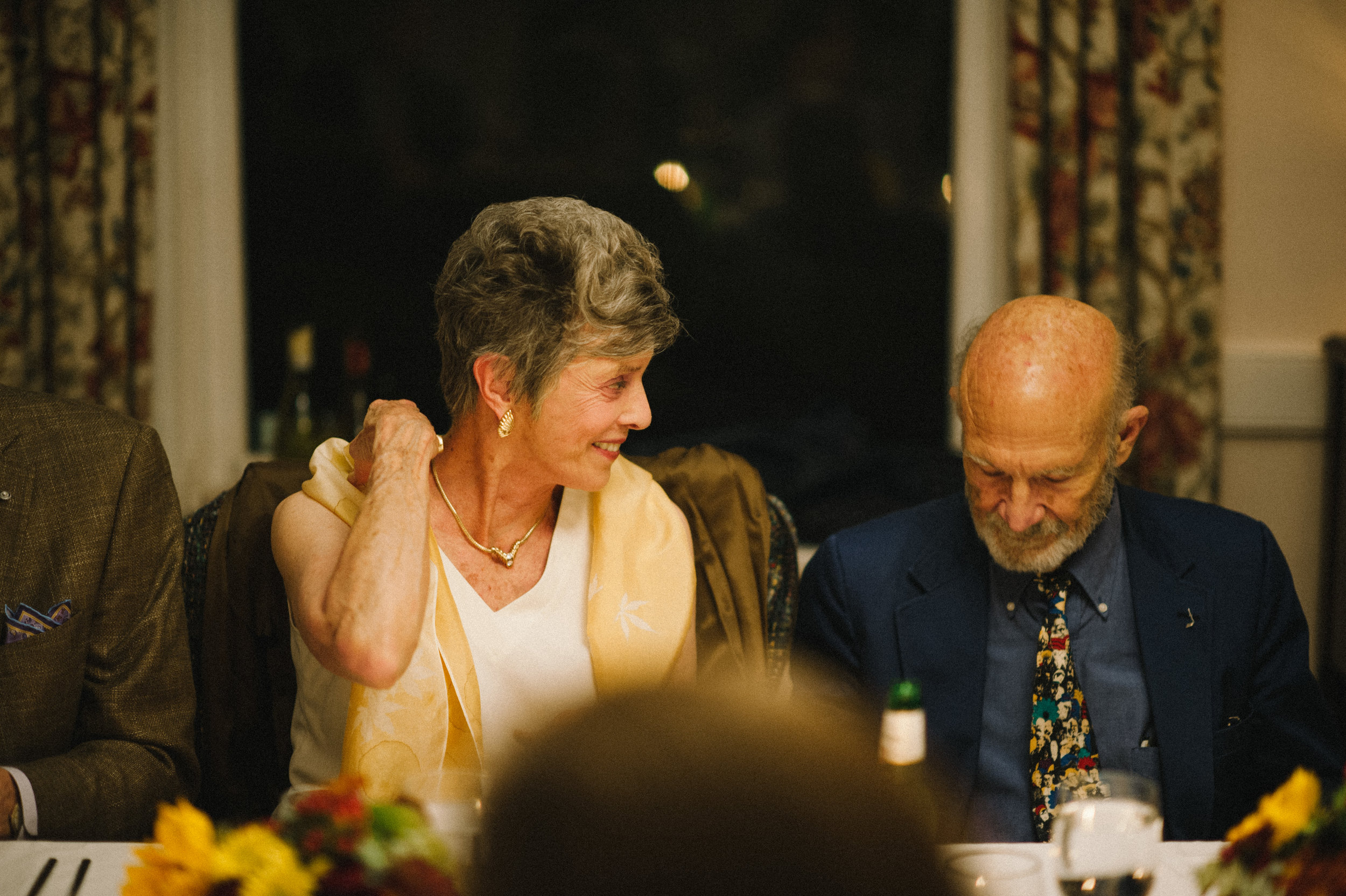God in the whirlwind. Reflections by Perkins Fellow Dominique DeBose '19
Lately I've been feeling like I'm in the middle of a whirlwind*. A disorienting but comforting peacefulness at the core, accompanied by an eerie awareness of the fact that I am surrounded by gales of ungraspable uncertainty... I'm not sure if I should be encouraged or fearful. My vision is clouded... although what vision? The winds protect me, I suppose, or maybe limit me? I want to give my all to something, I want to go out into the world. But I don't know where. I have this mind-eating anxiety about what God's will for me is and a heart-aching desire to pursue it. Yet still, in light of all of my endless interests and passions, I refuse to think of God's will as a time-sensitive bus that I stand in wait for at a specific stop on the corner, worried that if I'm not paying attention, it will pass me by, and I will be left stranded. Instead, her will is of a daily state of mind. So, in that, I ask for WISDOM, FOCUS, PEACE, and RETENTION to go on living each day at a time. I don't know what I'm doing and I don't know where I am going. And that's okay.
I've come to realize that God is too good to me to let me truly miss out on anything. A tolerant mother who just wants the best for me. Though in the midst of the whirlwind, I get frustrated and angry wondering why she speaks in indecipherable metaphors instead of clear answers, irritated because I cry out and hear no answer. I get annoyed because I thought she was good. But who am I but a child? Who am I to doubt her goodness that has already been so prevalent and revealed to me thus far. Life-giving friends and all the laughter and other good medicines they come with, community, and family that I would be a fool to not express my gratitude towards is what has been given to me. I am learning to live each day at a time, with all of its confusions, frustrations, and laughs. And each day at a time, I will continue to seek God's will with wisdom, focus, peace, and retention.
*whirlwind: also, used in similes and metaphors to describe an energetic or tumultuous person
Lent 1: at the far side of the wilderness
Then you will call and the Lord will answer. You will cry for help and God will say, "I'm here." Isaiah 58:9
Moses led the flock he was tending to the far side of the wilderness
and came to Horeb, the mountain of God.
There the angel of the Lord appeared to him in flames of fire from within a bush...
Moses thought, 'I will go over and see this strange sight--why the bush does not burn up.'
When the Lord saw that Moses had gone over to look,
God called to him from within the bush, 'Moses! Moses!'
And Moses said, 'Here I am.' Exodus 3:1-4
Where does Moses encounter God? On the far side of the wilderness--that out of the way, untamed place where Moses slows down & tends his flock in quiet. It's the ideal place for God to capture his attention. Alone with his sheep, Moses can't help but see the steadily burning bush. He draws closer until God calls him by name: "Moses! Moses!" In this intimate meeting, God touches Moses to the depths of his heart.
During this time of Lent, I'm invited to travel to the far side of the wilderness, a place where nothing much is happening. In those moments away from the everyday chatter, manifestations of God's strange blazing beauty wait for me. There God calls me by my name and hopes for my response, "Here I am."
Your wilderness can be a graced place. Be still and let the things of God touch your heart. Wait for God to whisper your name, to light a flame in your spirit, to speak of how beloved you are.
Let's be comfortable with being uncomfortable - Laura Eom '18
A new year means new resolutions to do better, be better, and grow as person. It’s only the middle of January though and I am already failing at my new years resolution: to be comfortable being uncomfortable. I’ve fallen back into the same routine of going to class, talking to the same people, eating the same food, and going to the same places for fun. I am addicted to comfort and security… and there’s a good chance you are too.
Being a Horizons Fellow has challenged me to step outside of my comfort zone, specifically, when it comes to racial justice. In one of our recent meetings, we were able to talk about how to approach racial reconciliation in Charlottesville with its history and current issue of gentrification. This meeting included the Perkins Fellows as well, and I was not the only minority speaking on this issue.
The discussion did not end with a singular action based resolution and it would be naive to think that a complex societal issue could be solved in one meeting. Nevertheless, that should not debilitate one to inaction. No one has to do everything, but everyone has to do something.
Start by listening to the people who are affected by this issue. This means going out of your way to meet people who are different from you. Go to culture shows, One Way IV/AIV/GCF large group, BSA/ISA/VSA meetings and listen! Let people talk about their experiences and validate them. Their experiences are real and may extend beyond just themselves. Be comfortable being uncomfortable not knowing everything about race and privilege. I myself am still learning from people who come from different backgrounds than my own and it can still feel uncomfortable at times! Don’t be afraid of feeling stupid asking questions. It is more stupid to accept living in ignorance. And if you’re someone who has never had to think about how race affects your day-to-day life, it is to be expected that some things need to be explained. And that is OK! It is a process and it takes humility to accept this.
Let's move towards looking more like Christ and be people who initiate these conversations. Jesus initiated conversation when it came to the Samaritan woman (John 4:7-42) and the crippled beggar (John 5:1-15). And in both situations, he was met with pushback and awkwardness. But, Jesus proceeded to converse and interact anyway. He was not deterred from the responses because he loved each one deeply. Our love for comfort and routine should not supersede our love to know and understand brothers and sisters of a different race.
This year, I commit to being comfortable being uncomfortable, not only for the sake of my brothers and sisters, but for my own personal growth. I will be intentional in placing myself in communities that don’t look like me, and learning from them. Will you step out in faith and take up this challenge with me?
To learn more about the Horizons Fellows program, click here.
What Does Every College Kid Need? Good Friends. - Jodie Berndt
We are doing a book give away of Jodie's new book, Praying the Scriptures for your Adult Children! Email us your name and mailing address by midnight, Friday, January 12th and we'll announce the winners early next week!
I remember the high school counselor asking Robbie and me what we were looking for in a college for Hillary, our eldest. He expected, I guess, for us to say something like “affordable tuition” or “strong academic reputation” or even something lofty, like “opportunities to pursue bio-medical research.” I think the guy was a little stunned when I gave him my answer: I wanted my daughter to go someplace where she would make good friends and enjoy strong Christian fellowship.
Fellowship is a tricky word. Author John Ortberg says it is “churchy,” and that it “suggests basements and red punch and awkward conversations.” I get that. But I also understand what Ortberg means when he says that fellowship is something we can’t live without. And when the time came to send Hillary—and then later, her siblings—off to college, my first prayers were for them to find life-giving friendships, the kind marked by things like loyalty, joy, and a vibrant commitment to Christ.
God answered those prayers, but the road to connectedness has not always been easy, or quick. I remember dropping Hillary off at U.Va. on Move-In Weekend. Someone had chalked a cheery greeting on the sidewalk steps:
The words held such promise! But, two months later, as the newness wore off and homesickness set in, they seemed almost hollow. Hillary had a great roommate and her life swirled with classes and social activities, but she had not yet discovered “her people.” There was friendship space that had yet to be filled.
Our kids need good friends. We can’t make them for them, but we can certainly ask God to provide. And as we pray for this need—as we partner with God to accomplish his good purposes in our kids’ lives—let’s look to the Scriptures for insight on what matters most. There are, obviously, all sorts of ways we might pray; here are three of my top friendship requests:
Constancy. The Bible offers several portraits of friendships marked by loyalty, dependability, and faithfulness: Jonathan and David. Ruth and Naomi. And of course Jesus, the one who promised to be with us “always, to the very end of the age” (Matthew 28:20). Let’s ask God to give our kids faithful friends and to draw them into a life-giving relationship with Jesus, the one who gave up his life “for his friends” (John 15:13).
Next, Transparency. When I was a student at U.Va., I had two roommates (Susan and Barbie), and we gave each other permission to be what we called “brutally honest.” It didn’t matter if we were critiquing an iffy outfit or confronting each other about a questionable behavior; we spoke the truth. We tried to do so with love, but even the gentlest rebukes sometimes hurt. “Faithful,” Proverbs 27:6 says, “are the wound of a friend.” Let’s ask God to give our college kids friends like that—friends with whom they can admit their mistakes and find restoration, forgiveness, and genuine love.
And finally, let’s pray that our kids will enjoy friendship with other believers, the “fellowship of the Holy Spirit” that Paul talks about in 2 Corinthians 13:14, the kind that fosters connection, not just on the natural level, but also in the deepest recesses of the soul. Friendships forged around common interests (sports teams, Greek life, good books) are wonderful, but when the common ground of eternity comes into play, the most satisfying relationships—the kind that transcend things like race, age, and socioeconomic background—can take root. Let’s ask God to surround our children with friends who will “spur them on toward love and good deeds” and run alongside them as they “pursue righteousness, faith, love, and peace.” (Hebrews 10:24, 2 Timothy 2:22)
If you like praying this way—taking the words we find in the Bible, and using them to give shape to our prayers—you’ll find hundreds of prayer prompts in my new book, Praying the Scriptures for Your Adult Children. In addition to the prayers about friendship, the book covers grown-up needs like getting a job, resisting the party culture, and making the transition to adulthood with wisdom, purpose, and grace.
It doesn’t matter how old our kids are, or how far away they may go. We never stop loving them. We never stop wanting God’s best for their lives. We might not be able to pick their friends (or anything else they might choose), but we can pray. We can slip our hand into God’s—the One who loves them enough, and is powerful enough, to do more than all we could ask or imagine—and trust him to do what he promised.
It is God who works in you to will and to act in order to fulfill his good purpose. (Philippians 2:13)
_____________________________________
Jodie Berndt is a 1984 graduate of The University of Virginia and a former co-chair of the U.Va. Parents Fund Committee. The author of nine books (including the popular Praying the Scriptures series), Jodie is a speaker, writer, and Bible teacher. Find her writing at JodieBerndt.com, or connect with her on Facebook (Jodie Berndt Writes), Instagram (@jodie_berndt), and Twitter (@jodieberndt).
Jodie and her husband, Robbie (Class of 1985), have four Wahoo children and two Hokie sons-in-law. Which, except during football season, is not such a bad thing.
A Sonnet for Epiphany by Malcolm Guite
It might have been just someone else’s story,
Some chosen people get a special king.
We leave them to their own peculiar glory,
We don’t belong, it doesn’t mean a thing.
But when these three arrive they bring us with them,
Gentiles like us, their wisdom might be ours;
A steady step that finds an inner rhythm,
A pilgrim’s eye that sees beyond the stars.
They did not know his name but still they sought him,
They came from otherwhere but still they found;
In temples they found those who sold and bought him,
But in the filthy stable, hallowed ground.
Their courage gives our questing hearts a voice
To seek, to find, to worship, to rejoice.
To listen to Guite explain and read his poem, click here.
The shimmer of angels' wings: Advent 3
The Annunciation by Malcolm Guite
We see so little, stayed on surfaces,
We calculate the outsides of all things,
Preoccupied with our own purposes
We miss the shimmer of angels' wings.
They coruscate around us in their joy,
A swirl of wheels & eyes & wings unfurled;
They guard the good
we purpose to destroy,
A hidden blaze of glory in God's world.
But on this day a young girl stopped to see
With open eyes and heart.
She heard the voice--
The promise of his glory yet to be
As time stood still for her to make a choice.
Gabriel knelt & not a feather stirred.
The Word himself was waiting on her word.
Magnificat by Mary F.C. Pratt
Under pine trees in the snow,
the chickadees around my head,
I wept for the will of God,
this hungry woman fed.
All the shadows shifted,
while my back was turned.
Once and always on my finger
one soft and small gray bird.
Not a twisting due to prayer
but all its own, and mine together.
And so I bear the gift,
carry it through time--
this deepest darkness.
astonishing grace.
Capps Lecture with Dr. Stanley Hauerwas Slideshow
Photos by the talented Lauren Stonestreet of our Capps Lecture with Dr. Stanley Hauerwas. To watch the lecture, click here.
The World is Wild! Advent 2
"The House of Christmas" by G.K. Chesterton (1874-1936)
There fared a mother driven forth
Out of an inn to roam;
In the place where she was homeless
All men are at home.
The crazy stable close at hand,
With shaking timber and shifting sand,
Grew a stronger thing to abide and stand
Than the square stones of Rome.
For men are homesick in their homes,
And strangers under the sun,
And they lay on their heads in a foreign land
Whenever the day is done.
Here we have battle and blazing eyes,
And chance and honour and high surprise,
But our homes are under miraculous skies
Where the yule tale was begun.
A Child in a foul stable,
Where the beasts feed and foam;
Only where He was homeless
Are you and I at home;
We have hands that fashion and heads that know,
But our hearts we lost - how long ago!
In a place no chart nor ship can show
Under the sky's dome.
This world is wild as an old wives' tale,
And strange the plain things are,
The earth is enough and the air is enough
For our wonder and our war;
But our rest is as far as the fire-drake swings
And our peace is put in impossible things
Where clashed and thundered unthinkable wings
Round an incredible star.
To an open house in the evening
Home shall men come,
To an older place than Eden
And a taller town than Rome.
To the end of the way of the wandering star,
To the things that cannot be and that are,
To the place where God was homeless
And all men are at home.
The Shaking Reality of Advent
Alfred Delp (1907-1945) was Christian condemned for his opposition to Hitler. He wrote this reflection on Advent shortly before his execution.
He has performed mighty deeds with his arm; he has scattered those who are proud in their inmost thoughts. – Luke 1:51
There is perhaps nothing we modern people need more than to be genuinely shaken up. Where life is firm we need to sense its firmness; and where it is unstable and uncertain and has no basis, we need to know this, too, and endure it.
We may ask why God sends whirlwinds over the earth, why the chaos where all appears hopeless and dark, and why there seems to be no end to human suffering. Perhaps it is because we have been living on earth in an utterly false and counterfeit security. and now God strikes the earth till it resounds, now he shakes and shatters: not to pound us with fear, but to teach us one thing – the spirit’s innermost longing.
Many of the things that are happening today would never have happened if we had been living in that longing, that disquiet of heart which comes when we are faced with God, and when we look clearly at things as they really are. If we had done this, God would have withheld his hand from many of the things that now shake and crush our lives. We would have come to terms with and judged the limits of our own competence.
But we have lived in a false confidence, in a delusional security; in our spiritual insanity we really believe we can bring the stars down from heaven and kindle flames of eternity in the world. We believe that with our own forces we can avert the dangers and banish night, switch off and halt the internal quaking of the universe. We believe we can harness everything and fit it into an ultimate scheme that will last.
Here is the message of Advent: faced with him who is the Last, the world will begin to shake. Only when we do not cling to false securities will our eyes be able to see this Last One and get to the bottom of things. Only then will we have the strength to overcome the terrors into which God has let the world sink. God uses these terrors to awaken us from sleep, as Paul says, and to show us that it is time to repent, time to change things. It is time to say, “all right, it was night; but let that be over now and let us get ready for the day.” We must do this with a decision that comes out of the very horrors we experience. Because of this our decision will be unshakable even in uncertainty.
If we want Advent to transform us – our homes and hearts, and even nations – then the great question for us is whether we will come out of the convulsions of our time with this determination: Yes, arise! It is time to awaken from sleep. a waking up must begin somewhere. It is time to put things back where God intended them. It is time for each of us to go to work – certain that the Lord will come – to set our life in God’s order wherever we can. Where God’s word is heard, he will not cheat us of the truth; where our life rebels he will reprimand it.
We need people who are moved by the horrific calamities and emerge from them with the knowledge that those who look to the Lord will be preserved by him, even if they are hounded from the earth.
The Advent message comes out of our encounter with God, with the gospel. It is thus the message that shakes – so that in the end the entire world shall be shaken. The fact that the son of man shall come again is more than a historic prophecy; it is also a decree that God’s coming and the shaking up of humanity are somehow connected. If we are inwardly inert, incapable of being genuinely moved, if we become obstinate and hard and superficial and cheap, then God himself will intervene in world events. He will teach us what it means to be placed in turmoil and to be inwardly stirred. Then the great question to us is whether we are still capable of being truly shocked – or whether we will continue to see thousands of things that we know should not be and must not be and yet remain hardened to them. In how many ways have we become indifferent and used to things that ought not to be?
Being shocked, however, out of our pathetic complacency is only part of Advent. There is much more that belongs to it. Advent is blessed with God’s promises, which constitute the hidden happiness of this time. These promises kindle the light in our hearts. Being shattered, being awakened – these are necessary for Advent. In the bitterness of awakening, in the helplessness of “coming to,” in the wretchedness of realizing our limitations, the golden threads that pass between heaven and earth reach us. These threads give the world a taste of the abundance it can have.
We must not shy away from Advent thoughts of this kind. We must let our inner eye see and our hearts range far. Then we will encounter both the seriousness of Advent and its blessings in a different way. We will, if we would but listen, hear the message calling out to us to cheer us, to console us, and to uplift us.
From Watch for the Light: Readings for Advent and Christmas.
On Saint Nicholas
It is common and appropriate to decry the commercialization of the Christmas season. There are fewer voices raised to mourn the trivialization of St. Nicholas. Well does he deserve to be the patron of children, and well might they delight in his name. But he might be remembered not only as the jolly source of toys and treats but also as the protector of those whose lives and innocence remain threatened today, as they were in the time of St. Nicholas, by violence, poverty, and exploitation.
From All Saints: Daily Reflections on Saints, Prophets, and Witnesses For Our Time by Robert Ellsberg
From “Life of Saint Nicholas” by Michael the Archimandrite, (written between 814 and 842)
Nicholas, the famous champion of those languishing in travails and prophetic high priest, by God's choice, of the metropolis Myra, was born in the city of Patara, one of cities then illustrious in the province of Lycia, although now it is said to scarcely preserve the appearance of a village. His parents were thoroughly noble and well-off, and surpassed many in their reverence toward Christ, on account of which they kept themselves free of worldly glory and were always eager to devote themselves to the works of justice. For the ever-pious understand that the person who touches tar is not free of its stain.
After his parents had gone to the Lord and left him much property and an abundance of money and possessions, he reckoned that he had God as his father. Gazing chastely on Him with the eye of his soul, he firmly begged the good God that he surrender his life and all his possessions, if that seemed good to Him. He said: "Teach me, Lord, to do Your will, because You are my God" (Psalm 143.10) as well as "Make known to me, Lord, the path upon which I am to journey, because to You I have lifted my soul from all triviality and worldly lowliness." (Psalm 143.8). He seemed to hear God, as it were, speaking clearly through the holy prophet David: "Even if wealth abounds, do not surrender your heart" (Psalm 62.11). And similarly the author of Proverbs plainly teaches: "Let almsgiving and acts of faith not abandon you, but fasten them around your neck and you will find grace" (Proverbs 3.3) as well as "That person benefits his soul, who has pity on the destitute and those who happen to be poor in their livelihood." (Proverbs 11.17). Nicholas did not cease to continually hand over his abundance — to store it up in the secure treasure-houses of heaven. So he was repaid in full by the impoverished.
There was a certain man among those who were recently famous and well-born, and he was a neighbor, his home being next to Nicholas'... He had three daughters who were both shapely and very attractive to the eye, and he was willing to station them in a brothel so that he might thereby acquire the necessities of life for himself and his household. For no man among the lordly or powerful deigned to marry them lawfully, and even among the lower-classes and those who owned the least bit of something there was no one well-minded enough to do this. And so the man looked away from his salvation and, as it were, fainted at the thought of prevailing upon God with persistence and prayer. By this logic he came to assent to situating his daughters in the abyss of such dishonor.
But the Lord who loves humankind, who never wishes his own creation to become hostage to sin, sent him a holy angel — I mean the godlike Nicholas — both to rescue him, along with his whole household, from poverty and destruction, and to restore readily his previous prosperity. …By the expenditure and very generous donation of his own money, Nicholas became a most ready resource for their defense, and he saved them, though they were already being led away to a death of profligacy...
The true model of purity and author of sympathy, Nicholas, wishing to use his own money to help the man, and to lead him with his daughters away from the shameful and dishonorable deed which had, in truth, already been decided for them — what does he do? He does not appear to him in person or speak about a gift or any other type of relief, thereby freeing him from shame while at the same time very carefully1 taking the trouble not to trumpet his own charity. After hurling a bag containing a large amount of gold into the house through the window at night, he quickly hastened home...
As Bishop of Myra, Nicholas lived the qualities that caused his fame and popularity to spread throughout the Christian world. His vigorous actions on behalf of his people and in defense of the Christian faith reveal a man who lived his convictions. Nicholas was not timid—he did what was necessary and was not easily intimidated by others' power and position. His concern for the welfare of his flock and his stand for orthodox belief earned him respect as a model for bishops and a defender of the faith. His active pursuit of justice for his people was demonstrated when he secured grain in time of famine, saved the lives of three men wrongly condemned, and secured lower taxes for Myra. He taught the Gospel simply, so ordinary people understood, and he lived out his faith and devotion to God in helping the poor and all in need.
Welcome, all Wonders! Advent 1
Advent ("arrival")
has been observed by Christians since ancient times. It is a season of inward preparation for God's wondrous coming into our midst: a time of gladness and fear. This God who came to Bethlehem---and who will come again in glory---conquers darkness, scatters the proud, humbles the mighty, feeds the hungry, and sends the rich away empty-handed (Luke 1:51-53). How will we get ready for such a coming?
Dietrich Bonhoeffer gives us a picture of Advent as "a prison cell, in which one waits, hopes, and is completely dependent on the fact that the door of freedom has to be opened from the outside." The essence of Advent, then, is expectancy and readiness for action: watchfulness for every small opening, and a willingness to risk everything for freedom and a new beginning.
“Conversion” by Marci Johnson
How can word
become flesh?
Belly. Bone.
Tongue—the feel
in the mouth a word
rolling around. Word,
not a kiss not the thing
itself—a name. The arch
of a foot. Your face
in my hands, just
a name. Blue sky lolling
beyond the window
frame—eyes open.
Just a way of looking.
Begin with a change.”
from Frederick Buechner:
In the sixth month the angel Gabriel was sent from God to a city of Galilee named Nazareth, to a virgin betrothed to a man whose name was Joseph, of the house of David; and the virgin's name was Mary," and that is the beginning of a story – a time, a place, a set of characters, and the implied promise, which is common to all stories, that something is coming, something interesting or significant or exciting is about to happen. And I would like to start out by reminding you that this is what Christianity is. If we whittle away long enough, it is a story that we come to at last. And if we take even the fanciest and most metaphysical kind of theologian or preacher and keep on questioning him far enough – Why is this so? All right, but why is that so? Yes, but how do we know that it's so? – even he is forced finally to take off his spectacles and push his books off to one side and say, "Once upon a time there was...," and then everybody leans forward a little and starts to listen.
We want to know what is coming next. There was a young woman named Mary, and an angel came to her from God, and what did he say? And what did she say? And then how did it all turn out in the end? The story Christianity tells is one that can be so simply told that we can get the whole thing really on a very small Christmas card or into two crossed pieces of wood. Yet in another sense it is so vast and complex that the whole Bible can only hint at it, a story beyond time altogether. Yet it is also in time, the story of the love between God and humanity. There is a time when it begins, and therefore there is a time before it begins, when it is coming but not yet here, and this is the time Mary was in when Gabriel came to her. It is Advent: the time just before the adventure begins, when everybody is leaning forward to hear what will happen even though they already know what will happen and what will not happen, when they listen hard for meaning, their meaning, and begin to hear, only faintly at first, the beating of unseen wings.
On Bread & Roses by Perkins Fellow Isabella Hall '19
From sweat, dirt, and enduring swarms of mosquitoes comparable to the army of locusts depicted in the book of Joel, to traveling to Princeton Theological Seminary for a conference on race and food, my partnership with Bread & Roses through the Perkins Fellowship has been an adventure. Bread & Roses, a ministry of Trinity Episcopal Church, is a non-profit which focuses on nutritional outreach. Some of the ways this is accomplished is through the community garden and cooking clinics which are hosted at the church as well as collaboration with other organizations working toward food justice in Charlottesville. One of the reasons I was attracted to Bread & Roses at Trinity Episcopal is its rich heritage as an intentional multiracial community of reconciliation. The Church is located on Preston Avenue, a stone’s throw away from my home, the Perkins House. I am grateful to be partnering with a ministry that serves, and is situated within, my neighborhood.
My time at Bread & Roses has primarily been in the garden alongside the volunteers, most of whom are Trinity Episcopal members, who gather weekly to tend to the garden. Beginning in June, I started attending garden work days and quickly realized how little I knew and how much there was to learn! I was always asking questions, taking directions, attempting to soak up the extensive knowledge of the more seasoned garden workers, like Sally and Martha. I was shown so much patience and overtime, a vibrant little community had formed as we planted, weeded, and watered. We began to share meals on a monthly basis. After we completed the garden work, we’d gather over fresh food, often prepared using produce from the Bread & Roses garden or the personal gardens of the volunteers. These meals were never lacking in laughter and gradually, the various quirks and idiosyncrasies of each volunteer became remarkably endearing. It was, and continues to be, a dynamic group with a wide range of ages, occupations, ethnicities. Our once monthly meals transitioned into a biweekly event and suddenly, there was never a gathering without fresh food and a time of fellowship. I really cannot find the words to describe my gratitude for these relationships, none of which I would have had I remained within the narrow boundaries of the University community. Seeing these friends and working alongside one another in the heat and the dirt became a rhythmic occurrence each week, an essential piece of my lived liturgy.
Another component of my involvement with Bread & Roses has been thinking deeply about our food systems—the mechanisms by which we produce, acquire, and consume our food. Bread & Roses was generous enough to send me to Princeton Theological Seminary’s “Just Food” conference on race and food where I learned a tremendous amount about our centralized, mass-producing food industry known as the Food Regime. Some of the problems of the Food Regime include the exploitation of migrant and farm workers, the degradation of the land and natural resources, gentrification which displaces the poor, unequal access to healthy and affordable food options, and an increasingly centralized system which depletes local production and small-scale, sustainable farming. What’s more, these macro problems inordinately affect women and people of color, such as Latino/a migrant workers to inner-city African-Americans. While these problems are systemic and cannot be rectified with individual actions, confronting the reality of the situation certainly gave me pause and caused me to reflect upon my role within these systems. How am I to eat justly, sustainably, in a way that is honoring of my body, my neighbors, and the land? This is where “alternative food orders” become so vitally important. What’s an alternative food order? Think operations or organizations which connect people more closely with the production of their food—locally owned supermarkets like Reid’s, buying from local farms, community gardens and other forms of community supported agriculture (CSA) like farmers markets. These operations nurture local economies and social networks, thereby strengthening communities, in addition to reducing the environmental impact of agriculture. At first blush, a plot of land upon which neighbors get together and grow vegetables may not seem a revolutionary endeavor, but in fact, it is! Think of how countercultural this act is in light of the way most people obtain their food—purchasing foods that have traveled thousands of miles, grown in lands we have little connection to, by people we don’t know, who may or may not have been fairly compensated.
It’s important to recognize that not everyone has the time, money, or luxury to be so conscientious about the origins of their food. Particularly in the case of working class individuals and families, such concerns seem remote in the face of combatting hunger and food insecurity for oneself or their children. However, as a University student, I feel that I have a responsibility, in the wake of the privilege I have been afforded, to be thoughtful about where and how I consume. Another challenge to the work of food justice, and community development more broadly, is a lack of time. As University students are acutely aware, we operate under serious time constraints. Many people who would perhaps like to participate in one of the many community gardens Charlottesville has to offer, are simply unable to because of lack of time. I feel this challenge quite poignantly because in the garden, in my scholastic work, in the spheres of racial, economic, food, and housing justice—the work is never finished. I sympathize with the exasperation of the disciples commanded to feed five thousand men, “Well Jesus, that’s a really sweet sentiment but we only have a few loaves of bread and two fish!” (Matt 14:17, IZH translation). Seemingly, I do not have enough time or money or the social capital required to be impactful. At this point, I must reckon with my own insufficiency. My doing or being “enough” is not the point. Jesus is enough. Perhaps Jesus will multiple my time and efforts like the fishes and loaves, but even if he does not, I am intimately acquainted with the heart of God through pressing into these seemingly insurmountable issues. In fact, the reality of our individual limitations is an invitation into relationship with others. I recently attended the Christian Community Development Association annual conference and was struck by the following statement, “Kingdom sized vision requires Kingdom sized collaboration.” Rather than become exhausted and embittered by our finitude, might these limits instead remind us that we are members of a larger body, working together toward a Kingdom that is both now and not yet.
As we quickly move through the fall season and pull the last of the sweet potatoes out of their beds, my role at Bread & Roses has shifted, but the community has not. In fact, the garden crew has now entered into a book study together in which we read and discuss “Wisdom Distilled from the Daily: Living the Rule of St. Benedict Today.” This book has yielded countless insights on what it means to live in community as well as what it means to monastically approach the daily grind. The author, Joan Chittister, writes, “The monastic looks for holiness in the here and now, unburdened by strange diets or esoteric devotions or damaging denials of self. The real monastic walks through life with a barefooted soul, alert, aware, grateful, and only partially at home” (10). Engaging with the practical wisdom of the Rule of St. Benedictine has been an invaluable resource for life as a resident within the Perkins House. As an eclectic Evangelical and a student of religion, I have really enjoyed exploring the Episcopal tradition, through Trinity Episcopal, and its unique expression of worship which is an integral piece of the body of Christ. As the winter season approaches, we turn toward grant writing, researching food policy, and the administrative tasks which make Bread & Roses possible.
Perhaps the greatest gift of my time at Bread & Roses, has been my relationship with Maria. Maria is the director of Bread & Roses, runs breakfast at the Haven a couple days a week, lives in Charis community, and shares my affinity for dark, caffeinated beverages. Her mentorship and friendship has been a tremendous blessing. Maria is a paragon of steadfastness and hopefulness, two virtues which are indispensable to the cause of doing justice, loving mercy, and walking humbly with our God. My conversations with Maria remind me that it is Christ and not I who has been tasked with carrying the weight of humanity’s sin. Her very presence reminds me to be thankful and from here, I know more about what it means to follow in the footsteps of Christ.
For more information about the Perkins Fellows program, click here.
On David Foster Wallace by Fellow Matt Pilsch '18
Matt (in the back) with his buddies.
As the leaves fall and the winter chill sets in, I tend to become more introspective than usual. I like to wrap up in thick layers of clothes, put on some Bon Iver, and settle in with my thoughts. After running through the list of things I meant to do outdoors while it was still warm, my brain caves to the constant nagging voice in the back of every 4th year’s head asking “what are you going to do next year?” Maybe I’ll move to a small town in France and work for a bakery and bake baguettes for a few years. Maybe I’ll be a ski instructor in Wyoming. Maybe it’s not too late to become a professional surfer (I have surfed once: was not good at it).
In our last gathering, the Horizons Fellows discussed, among other things, David Foster Wallace’s commencement address given to Kenyon College in 2005 that gives a powerful warning about the self-isolating lonerism that, I find, can accompany shorter, colder days. In the speech, Wallace warns against the worship of self that our world promotes. He says the default setting our culture instills in us is to chase wealth, comfort, and personal freedom: “the freedom to be lords of our own tiny skull-sized kingdoms, alone at the center of all creation.” Especially in our last year of college as we make plans for next year and beyond, we spend a lot of time thinking about ourselves. I sit alone and plan my story, dream of my future successes, and imagine my world. Thinking about the future is when I am most tempted to design my own tiny skull-sized kingdom.
It’s easy and comfortable for us to remain in our imaginary worlds, making self-serving plans, but the real freedom, according to Wallace, comes from paying attention to what’s going on outside of ourselves and truly caring about and sacrificing for the people around us “in myriad petty little unsexy ways, every day.” Wallace’s speech echoes Paul’s call for us to “do nothing out of selfish ambition or vein conceit. Rather, in humility, value others above yourselves, not looking to your own interests but each to the interests of others” (Philippians 2:3-4 NIV). Wallace eloquently re-articulates the Biblical truth that joy comes by humbling ourselves and serving the people around us, despite our tendency to think more of our selfish ambition.
The fall is a beautiful time of year in and around Charlottesville and a great time to enjoy God’s creation in solitude and reflecting, planning, and discerning what the future may hold for us are important, especially leading up to the big transition. It is, however, important that in times of thoughtfulness, we don’t get lost thinking only of ourselves. Wallace’s speech is a reminder that in all my thinking about future plans, I don’t lose track of serving the people around me in the present. Any plans I make won’t come to fruition for a few months and I still have the opportunity to immerse myself here at UVa. As I plan and pray and discern what my life may be like next year, I need to consider the people who I will surround myself with and how I will be able to serve them. God’s kingdom is so much larger than the little world I imagine to be mine. As the Fellows look to the future, my prayer is that we’ll constantly be seeking to discern our place in God’s kingdom and not become lost in our own tiny skull-sized kingdoms.
Reflections on the Perkins Fellows program by Evan Heitman '19
“And Jesus said to him, ‘What do you want me to do for you?’ And the blind man said to him, ‘Rabbi, let me recover my sight.’ And Jesus said to him, ‘Go your way; your faith has made you well.’ And immediately he recovered his sight and followed him on the way.” - Mark 10:51-52
Like many (all?) of the stories of Jesus, this one about Bartimaeus the blind beggar is remarkable. It is actually one of my favorite ones in the whole Bible. I think Bartimaeus has much to teach us about what faith is, what faith takes, and where faith leads, especially for college-aged Christians like myself. Asides from being a profound example of the kind of faith that Jesus loves and expects, this story speaks to a major theme of my coming to Christ my first year of college, and, by the grace of God, I hope it characterizes far more than just my experience in college and my experience putting my faith in Jesus for the first time. I hope that the example I find in Bartimaeus is the example I will make of myself and I pray that I would never falter in seeking new ways to carry my cross so that this hope may become reality. In a way, my work volunteering with Abundant Life through the Perkins Fellows program this year has been a means to that end and an extension of this greater theme in my life. So, without further adieu, let me explain what exactly I’m making this whole fuss about (feel free to read along in scripture as I go into further detail).
The story of Bartimaeus opens with him sitting by the roadside as the great crowd following Jesus passes by. Mark says that when Bartimaeus heard that is was Jesus who was going by, he cried out, “Jesus, Son of David, have mercy on me!” After which, many rebuked him and told him to be silent. Far from being discouraged, the text says that “...he cried out all the more, ‘Son of David, have mercy on me!'” I find this part of the story alone to be so incredible. Bartimaeus had never met Jesus, and being blind, he had no way of knowing that Jesus could even hear him or that it was really Jesus at all. Even though he was already an outcast and looked down upon, he fearlessly shouted out for the Son of David, the promised king, that he might look upon him and have mercy. Not only did he get no response from Jesus then, but those around him pressured him to stop asking and to just be silent and accept his lot in life. Showing incredible strength of faith and character, Bartimaeus cried out even more than he had before. I find this story to be so powerful because in my first year, I felt a hopelessness that I imagine is of a similar kind, if not degree, to what Bartimaeus must have felt at that point in his life. I felt utterly blind and lost about who I really was. I felt like everyone around me had a life they were truly living while I was just merely existing. I felt like a puppet dancing along the stage of my years but I couldn't for the life of me figure out how to grab hold of my own strings. I wanted to have faith in God and I tried to believe, but my doubts rebuked me and told me to stop asking. With no small amount of stumbling along the way, I tried my best to cry out all the more for God to do something, anything, in me, despite what I saw to be slim odds of that really happening.
Jesus stopped. That's what the text says in Bartimaeus’ story. Jesus, the King of Kings, God of the universe, heard Bartimaeus’ plea and altogether stopped what he was doing. And then he called to him. And just as Jesus changed Bartimaeus’ life forever, he changed my life forever. He showed me that He is living water and the bread of life. He called to me that I might have life and have it to the fullest. He took my heart in his hands and taught me to cry at the beauty of who He is and how wonderfully, perfectly real life with Him really is. This is the first chapter of the story God started writing in me and for reasons I don’t fully understand, He has asked me to coauthor the whole thing with Him. I believe that God has reasons for writing our early chapters the way that He does. I think that He uses our experiences as young children in His eternal family, so to speak, to shape and set the stage for the spiritually mature adults He calls us to be. The lesson I began to learn as a new Christian and the one I saw reflected in Bartimaeus’ life two thousand years ago is one that I think will be an important motif throughout my life and I think it's one that Jesus is trying to teach me a little more about this year through my participation in the Perkins Fellow Program.
One part of the chapter I currently find myself in is my wrestling with empathy. Really, I think this is just picking up where my previous struggle left off. God has brought me so far in learning to love being alive with Him, but often times, I feel as though I have an impossible distance left to travel when it comes to loving that life in others. I have a hard time entering into the pain of others. It makes me uncomfortable and I don’t think I do it particularly well when I try. Even when I am able to provide comfort to others, I fear that it is shallow, that I lack the ability for my comfort to come from a place of radical, selfless love. And then, for every time that I find my attempt at empathy lacking, there is a time when I reject the desire to empathize at all. I find myself making my own thoughts and my own experiences my god and resisting the call to humility. I commit the sin of partiality and become a judge with evil thoughts. I haven’t yet found the magic button for letting go of my pride, but too often I’d rather not let go of it at all. I see the degree to which I love my neighbor as a manifestation of how deeply I understand the steep price Jesus paid to win them for Himself and I don’t understand it even close to how much I wish to. As a Perkins Fellow, I have been provided an opportunity to cry out to Jesus to have mercy on me in this. If I’m being honest, I don't even know which direction to shout in, but I have to hope that Jesus hears me anyway. I have been given a chance to learn from Jesus how to love those who are growing up and have grown up as a minority, how to love those who are growing up poorer than I did, how to love kids whose childhoods have been more fraught with violence and evil than I can wrap my head around, and how to love fellow brothers and sisters in Christ who hold political ideas with which I fundamentally disagree. I hear the difficulty of all this (and it is hard) pressuring me to stay silent, to simply put in my required service hours and be done with it, but I pray for the strength and faith to cry out all the more.
Interview with Kyle Potter for the Goodwin Prize
Kyle is a native of Appalachian Kentucky, and holds the MTh (Applied Theology) from the University of Oxford, the MTS (Liturgical Studies) from the University of Notre Dame, and is a doctoral candidate in Systematic Theology at Marquette University, where he serves as a Teaching Fellow. Kyle’s primary research interests are ecclesiology, political theology, ecumenical theology, and the sacraments. He is a lay Preacher in the Episcopal Church.
Paper title: No Greater Love: Friendship as the Enactment of Charismatic Ecclesiology in the Small Asketikon of Saint Basil the Great
What inspired you to pursue an advanced degree in theology?
For as long as I've been a believer, I have been fascinated the diverse ways in which people have lived and experienced the Christian faith. My studies have broadened my thinking about God, worship, and mission, and enabled me to share the riches of the Christian tradition with others.
What do you hope to do with your degree?
I just want to teach! I would love to teach at a seminary so that I can help form future pastors and lay leaders for ministry. I am trained as a generalist, so I will be applying to religious colleges and universities as well.
Where do you see connections between your personal faith, your intellectual work and the other aspects of your life?
I am an academic who stands firmly in the Church. My major research interests — ecclesiology, liturgy, and political theology — are oriented to questions of how believers can best understand their live with God and one another as they consider God's call to serve the world.
How would you summarize your paper for someone without a theological background?
From my vantage point in 21st century America, our culture suffers a dearth of models for supportive, life-giving friendship. Like other contemporary writers, I went digging into the ancient monastic traditions for help. Basil of Caesarea's Small Asketikon is one of many guidebooks for living in Christian community that got passed around the late Roman Empire. I picked it because Basil was famous for some strong and stormy friendships, and for being persnickety about his regulations. In examining them, however, I discovered that he had a sophisticated understanding of human nature, and how Holy Spirit transforms lives in the context of committed friendships.
How might this award make a difference in your life?
My mentors have encouraged me to focus on my development as a writer, so the award is first a great encouragement in my vocation. Beyond that, I hope it will help me meet people that I might not meet otherwise, and of course, the prize itself will help in a quite practical way when I log on to the ACA Health Insurance Marketplace this month.
How do you spend your time when you are not studying?
I throw parties, develop my culinary talents, and read horror novels. Oh — and I take a lot of cat photos.
Any other comments?
I'm grateful to Theological Horizons for this recognition. I am grateful as well for Dr. Marcus Plested's guidance on this research project, and for the encouragement and careful criticism I have received from Dr. Susan Wood. I've become a better writer for it.
For more information on the Goodwin Prize, click here.
Interview with Erin Zoutendam for the Goodwin Prize
What inspired you to pursue an advanced degree in theology?
I started my master’s degree in theological studies for very pragmatic reasons: I thought I might like to go into academic editing, and a master’s degree seemed like it would help. But I very quickly fell in love with what I was studying, and I had some excellent professors along the way who encouraged me in what I was doing.
I’m now on my third theological degree, and I kept going for the same reason that I think a lot of people keep going: I still had (and have) questions about God. I’m especially interested in historical theology and retrieving wisdom from the historical church. A lot of my research has focused on women’s theological writing, on the theology of contemplation and prayer, and on how people have historically read and interpreted the Bible. All of those areas touch on my own life; indeed, the questions I have in my own faith have tended to drive and shape my research.
What do you hope to do with your degree?
I hope to teach someday, particularly at a seminary or divinity school. When I was pursuing my MTS and ThM degrees, I loved being in class with people who were going to be ministers. I’d never been around so many people who love the church and who are so committed to it. My classmates were really a gift, and it gives me great hope to know that someday the church will be in their hands. I would love to teach people like them in the future.
Where do you see connections between your personal faith, your intellectual work and the other aspects of your life?
In a beautiful essay called “Reflections on the Right Use of School Studies with a View to the Love of God,” twentieth-century mystic Simone Weil writes that the heart of prayer is attention: focused and unwavering attention to God. School studies, as she calls them, train and develop our faculty of attention. When I first read this essay, it made sense of why I have always loved my studies. Even when I was young, I found myself able to be interested in almost any subject. Part of this was because my parents, who are both very faithful people, did a wonderful job encouraging curiosity, wonder, and age-appropriate kinds of reading and research when I was young.
What my love of learning taught me was a disposition of attentive wonder. I have always had a sense that there is something new to learn just around the bend. That disposition is something that I try to bring to my personal faith. Of course, there is always a danger, at least for me, that study will come to eclipse spiritual practices: it is easy to spend all day reading about prayer and still forget to actually pray. So while I am by no means an “expert” at prayer or faith—and in fact I’m pretty poor at those things—I do try to worship and pray in a state of attentive wonder.
This disposition of wonder, which was nurtured by my studies as a young child and integrated into my faith as an adult, feeds right back into my intellectual work. Sometimes “’academic” theology is stereotyped as dry or abstract, but I find God everywhere in my work. I’m particularly drawn to theological writers whose lives and theology are one, and one place I find that is in medieval female mystics, although certainly it exists among many other theologians.
How would you summarize your paper for someone without a theological background?
Crying is something that everyone does—in fact, it is the very first thing you do when you’re born. And yet, scientifically speaking, we don’t know that much about tears. But historically, tears have been understood to possess great power: the power to communicate, the power to persuade, the power to heal, the power to redeem. This was never more the case than in the Middle Ages, when weeping was a common devotional practice. The question underlying my paper is how we might reclaim a theological understanding of tears. I explore this question through the lens of Catherine of Siena’s writing on tears in The Dialogue. Catherine was a fourteenth-century Italian mystic, theologian, and activist.
In my paper, I propose that Catherine viewed tears as an embodiment of individual desires. In other words, tears are a way for what is going on in your soul to become manifest in your body. I also argue that Catherine saw desire not as something bad to be eliminated but rather as something to be redirected. In other words, there is bad desire—greed, envy, the desire for vengeance—but there is also good desire—namely, the love of God. The goal is to convert bad desire into good desire, which is a lifelong process. I think that for Catherine, tears, as an embodiment of desire, could be ordered toward an end: self-knowledge and spiritual formation. I hope that by exploring the spiritual dimension of tears we can better understand how to learn from and be formed by our own tears.
How might this award make a difference in your life?
First of all, it is affirming on a personal level to know that my work resonates with other people. This particular paper has been near to my heart since I began writing it, and while I had a few affirming conversations with friends as I was researching it, it is encouraging to know that the work is of interest to others.
From a financial perspective, I hope to use the prize to further my studies. A lot of the research I am interested in is in German (as are some of the primary sources), and my German simply isn’t very strong yet. I hope to use the prize to take a German course in Germany and become much more confident in my language abilities.
How do you spend your time when you are not studying?
I’ve recently taken up birdwatching. My husband jokes that I like birdwatching because of the “taxonomical potential”—that is, because I’ve always been a sorter, a list-maker, and a bit obsessive. All of those things really pay off in birding! Learning the field markings for different species of sparrows is very exciting to me, which I know sounds odd. So my husband is not wrong, but I also think birdwatching is—like prayer, like studies—fundamentally about attention and expectation. You can’t summon birds, although you can try to put yourself in the right place at the right time.
When I’m not studying or birding, I like to read literary fiction. I enjoyed gardening before we moved to our apartment this year, and I also like traveling with my husband and spending time with our two cats.
Any other comments?
I would like to thank the professors who helped with this paper. I originally wrote it for an independent study supervised by Dr. Han-luen Kantzer Komline, whose careful reading and sharp eye for argumentation made the paper significantly stronger. And I first read Catherine of Siena’s work with Dr. Frans van Liere, who took a semester to read through the works of eight medieval women with me—a semester that has profoundly shaped my academic career. It was he who first suggested to me that there might be something of interest in Catherine’s chapter on tears.
To learn more about the Goodwin Prize in Theological Writing, click here.
Interview with Daniel Eng for the Goodwin Prize
Daniel K. Eng | University of Cambridge, PhD candidate
What inspired you to pursue an advanced degree in theology?
I am pursuing a PhD in theological studies for three reasons. First, as a pastor I’ve witnessed the need for quality theological teaching in connection with the church, which I am preparing to help meet. My aim is to join a growing group of pastors and scholars who promote biblical literacy in both the church and the academy.
Second, I have an intense desire to discover more about the biblical text. It was my parents who instilled in me a love for the Bible and for the church. Their loving guidance over the years has enabled me to pursue theological education. I am now appreciating this season of dedicated time to research and write as I investigate the texts that bring meaning and hope to so many people.
Third, I am motivated to communicate these truths and concepts from the Bible to others. The PhD process and degree offer opportunities for me to communicate in various settings. I’m grateful for the mentoring I received in different places in my life, from Talbot School of Theology to Evergreen Baptist Church SGV. The sum of these experiences has given me the tools and motivation teach the biblical text clearly.
I chose to come to Cambridge because of the world-class faculty and resources to which I have access. I am especially grateful for the library and conversations at Tyndale House Cambridge, an outstanding biblical research community, where many of the concepts for this paper were shaped.
What do you hope to do with your degree?
I am hoping to equip others through teaching biblical studies at a seminary or Bible college. I am grateful for fantastic experiences teaching in different capacities at Talbot School of Theology, Cru’s Institute of Biblical Studies, Tyndale House Cambridge, and Training for East Anglia Ministry. I especially hope to guide those who engage in church ministry, as I impact the church at large through teaching and mentoring. In addition, I plan to continue to preach and minister at a local church in some capacity.
The invigoration I experience through every teaching opportunity has driven my desire to fulfill this purpose in my life. I particularly appreciate the times when I facilitate foundational material to others, on which they can build and use to understand the biblical text well.
Where do you see connections between your personal faith, your intellectual work and the other aspects of your life?
One of my professors at Talbot School of Theology, the late Dr. Robert Saucy, once shared with me that he kept a sticky note at the place where he spent every morning reading the Bible and praying. The note read “Trust Me.” He placed it there as a reminder that his faith in God would always drive his daily activity.
As I follow Dr. Saucy’s example, my relationship with God motivates my intellectual work. The apostle Paul preached to a crowd in Athens that in God that “we live and move and have our being” (Acts 18:28). This statement deeply resonates with me, as I find my purpose as part of God’s unfolding redemption of creation.
The good news of the cross and the empty tomb provide motivation for me to investigate the biblical text. The gospel of Jesus Christ offers hope and meaning in all I do, and I endeavor to bring him glory in my intellectual work. I cannot think of any higher pursuit for myself than studying the character and message of God and communicating it to others. I’m grateful that I have the opportunity to engage in this as a vocation.
Upon moving to Cambridge, my family has found supportive community at both Tyndale House and Christ Church Cambridge. Both groups of believers have sustained us with encouragement and have given us opportunities to use our abilities to impact others. My wife Sanjung and I are committed to modeling faith in Jesus Christ to our three daughters: Joanna, Josie, and Jessica.
How would you summarize your paper for someone without a theological background?
In teaching about the kingdom of God, Jesus told many parables: short stories that illustrate profound truths. This paper explores one of the most well-known of Jesus’ parables, the Prodigal Son. I examine the dynamics of honor and shame in this parable, offering a fresh reading of the story through this lens. In a culture that valued the collective over the individual, Jesus taught to his first hearers that the movement he was creating would be characterized by a widening of the community’s circle.
The message of Jesus is then applied to the modern American church in the context of care for immigrants and refugees. While steering clear of a commentary about public policy, this paper calls the church to embody the message of the Jesus movement by expressing inclusivity and love towards those who are displaced and marginalized among us.
How might this award make a difference in your life?
I’m honored and grateful that my essay has been chosen for this award. My hope is that it will spark more conversations about how the church can embody Jesus’ message of a widening circle. I’m looking forward to seeing how these concepts can make an impact.
On a practical level, I am grateful that the privilege of receiving the Goodwin Prize communicates the quality of my research to potential employers. Some of the prize money will be used for something special for my wife Sanjung, who has been very supportive during my PhD journey.
Above all, this award has been an encouragement for me to press on through the demands of the PhD journey. As my morale can often ebb and flow, moments of affirmation like this inspire me to persevere.
How do you spend your time when you are not studying?
When I am not studying, I enjoy spending quality time with my family. I build deeper connections with my wife Sanjung and find opportunities to guide my children as they mature. We enjoy exploring Cambridge and the occasional trip elsewhere to build memories.
I keep a frequent preaching schedule, as I consider it a privilege to communicate the life-giving message of the Bible from the pulpit. Sanjung and I are actively involved at Christ Church Cambridge, volunteering with and participating in various ministries.
We also enjoy connecting with people through strategy board games. Our recent favorites are Kingdomino and 7 Wonders.
Any other comments?
I am very grateful to the Board of Directors at Theological Horizons for choosing my essay for this award, and to the donors for their generosity in encouraging theological writing.
I would also like to thank two of my mentors, Dr. Benjamin Shin of Talbot School of Theology, and Rev. Cory Ishida of Evergreen Baptist Church SGV, for encouraging me to pursue this PhD. These two men have spent countless hours investing in me, and their influence in my life has shaped some of the concepts of this essay.
Women, Work and the Myth of Balance | Some resources
Our 12 Horizons Fellows meet monthly to mull over a couple articles around the themes of faith & calling. We recently discussed the idea of calling itself and especially how women have a complex relationship with calling and careers. Here were our readings:
CALLING & CONSTRAINT
Jon Malesic – Don’t Search for Purpose, You Will Fail
Kate Harris – Constraint and Consent
And here are some questions to ruminate on further:
1) What would it be like (if I'm a guy) or how do I think about this idea as a woman of having to choose between motherhood and a career? What has my church or family or current context taught me to think about this?
2) How can we promote more equity in work and caregiving (which shouldn't be seen as second tier for either men or women) for women of all races and classes in our communities and country?
Anne-Marie Slaughter has loads of fascinating articles on The Atlantic website. Here are some if you want to dig in a little deeper:
Why Women Still Can't Have it All - one of the most read Atlantic articles in history that inspired Kate Harris to write her above critique.
The Having it All Debate convinced me to stop using the term Having it All
The Failure of the Phrase: Work-Life Balance
Directionally Challenged | Horizons Fellow Ellie Wood '18
“Arrive at Christy’s house by 8pm” -- a simple direction, with a not so simple destination. As a Horizons Fellow, I have the unique opportunity to meet with the other Fellows every month to discuss theology, chat about life, and learn how to live a life for Jesus. Christy, our fearless leader, has been gracious enough to open up her beautiful home out in the countryside for our monthly meetings. On this particular night, Margaret Draper (another Fellow) and I decided to carpool out to Christy’s house. Now, for those of you who don’t know me, you should know one thing: I am perpetually late. I have always been and most likely always will be at least 10 minutes late to the party. Following this pattern, Margaret and I were already running late to our Fellows meeting when we lost cell phone service and as a result lost our sense of direction.
Snaking down unknown, curvy roads, we quickly realized we had missed our turn. As we drove aimlessly, we discussed our post-grad plans and realized neither of us had any concrete ideas. We both had joined in on the typical UVa business consulting career frenzy but through our conversation, I realized I had no idea why I “wanted” to go into consulting. Within my major at the Batten School, everyone feels the unsaid pressure to have the best job in the best city while singlehandedly changing the world through policy. Somewhere along the way, consulting became the route to achieving all of this and more, so I wanted to get in on it. I didn’t consider whether or not I would actually enjoy consulting nor did I even attempt to ask God about it. I was captivated by the world’s definition of success but deaf to the Lord’s voice in my life. God calls us to a much higher purpose than to simply “be the best.” In 2 Peter 1:3, Peter addresses this calling by saying, “his divine power has given us everything we need for a godly life through our knowledge of him who called us by his own glory and goodness.” The key to this verse for me is ‘our knowledge of him’—and I realized that night that through my pursuit of knowledge in my major and in my job search, I’d forgotten first and foremost to seek knowledge of the Lord.
Despite arriving 30 minutes late, Margaret and I eventually made it to Christy’s house, and everyone welcomed us in with cookies and laughter. Although we may have taken the longer route to get there, the conversation was well worth it. As a 4th year, life often feels like a journey with a not-so-simple destination. But, since that car ride, the Lord has gently reminded me that He is the one holding the directions.
2017 Goodwin Writing Prize Winners Announced!
The Louise and Richard Goodwin Writing Prize for Excellence in Theological Writing was founded in 2001 to recognize upcoming scholars in the theological field. The writing prize is awarded by the Board of Directors of Theological Horizons, a non-profit corporation fostering reflection and responsibility in the church, the community, and the academy. Award are given to essays that demonstrate:
- creative theological thinking,
- excellence in scholarship,
- engagement with the Christian tradition, and
- commitment to the well-being of the church.
After four rounds of readings of the exceptional essays submitted from across 40 schools, the board of directors of Theological Horizons has awarded the $2,500 prize to Erin Risch Zoutendam (Duke University) for her essay, "The Body, the Heart, and Desire: Catherine of Siena's Theology of Tears."
The $1,000 prize has been awarded to Daniel Eng (Cambridge) for his essay, “Jesus' Shameless Message: Honor and Shame in the Parable of the Prodigal Son and its Significance for Immigrant Care and Refugee Relief.”
Kyle Potter (Marquette University) has been awarded $500 for his essay, “No Greater Love: Friendship as the Enactment of Charismatic Ecclesiology in the Small Asketikon of Saint Basil the Great. ”
Congratulations to the winners and a big thank you to all who submitted papers.
Abstracts of the winning essays and biographies of the writers will be posted on the our website soon.
Christianity is Madness! Capps Lecture by Dr. Stanley Hauerwas
In case you missed it, or in case you want to mull over it some more, Dr. Stanley Hauerwas gave a provocative lecture on Kierkegaard and the Academy on Thursday, October 12th at the University of Virginia. We were honored to host him in partnership with the Project on Lived Theology and through our Capps Lecture series.
To watch the video recording, click here.
Professor Hauerwas has sought to recover the significance of the virtues for understanding the nature of the Christian life. This search has led him to emphasize the importance of the church, as well as narrative for understanding Christian existence. His work cuts across disciplinary lines as he is in conversation with systematic theology, philosophical theology and ethics, political theory, as well as the philosophy of social science and medical ethics. He was named "America’s Best Theologian" by Time magazine in 2001. Dr. Hauerwas, who holds a joint appointment in Duke Law School, delivered the prestigious Gifford Lectureship at the University of St. Andrews, Scotland in 2001.
His book, A Community of Character: Toward a Constructive Christian Social Ethic, was selected as one of the 100 most important books on religion of the 20th century. Dr. Hauerwas recently authored The Work of Theology(Eerdmans, 2015), Hannah’s Child: A Theological Memoir, 2nd Ed. (Eerdmans, 2012), and War and the American Difference: Theological Reflections on Violence and National Identity ( Baker Academic Press, 2011).







